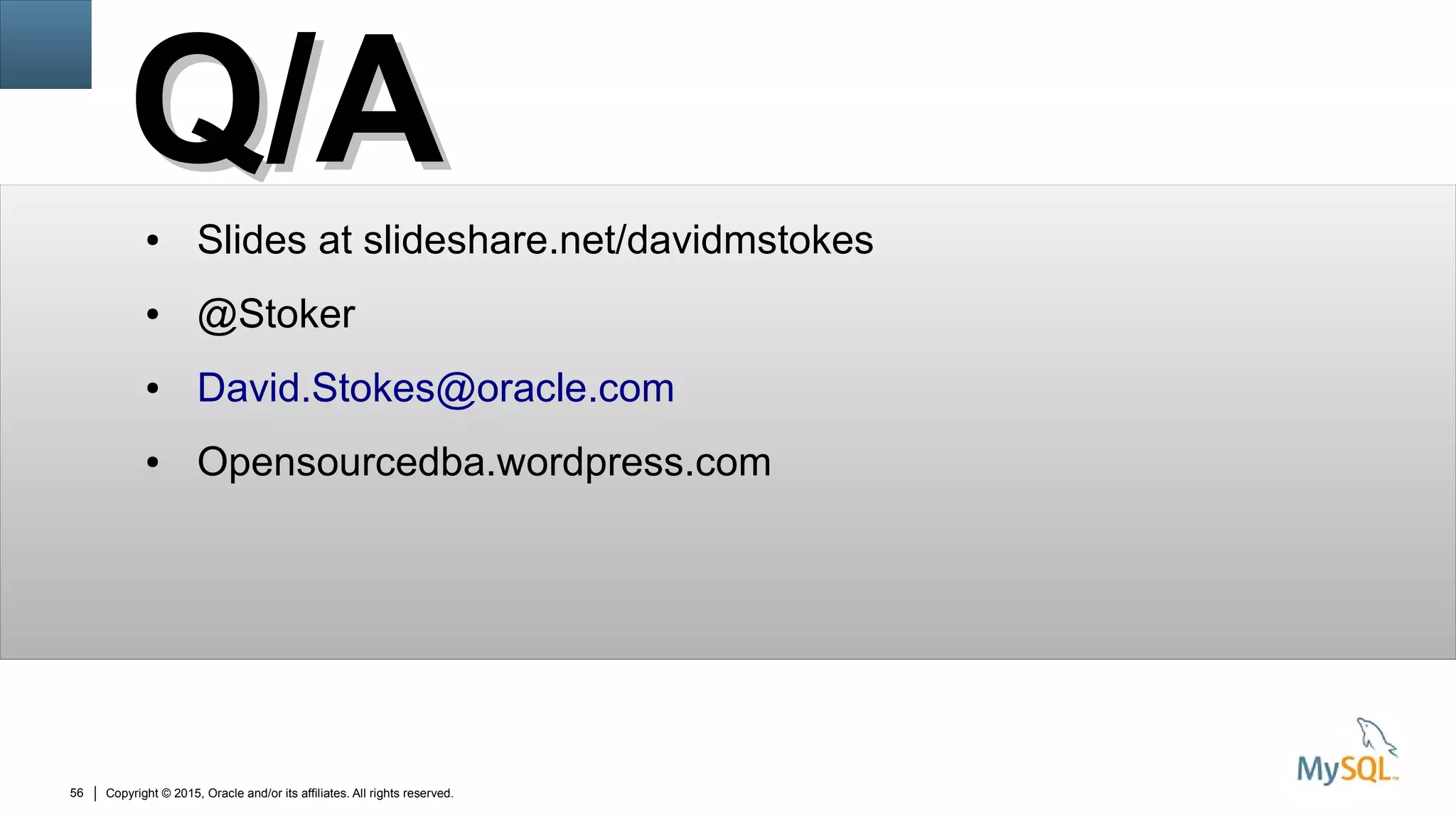The document covers the basics of using MySQL alongside PHP, emphasizing the efficiency of relational data management and the significance of well-structured SQL queries. It discusses common pitfalls in coder practices, the importance of proper data architecture, and offers examples of good query practices and the benefits of prepared statements. Additionally, it highlights resources for further learning and best practices for working with databases.
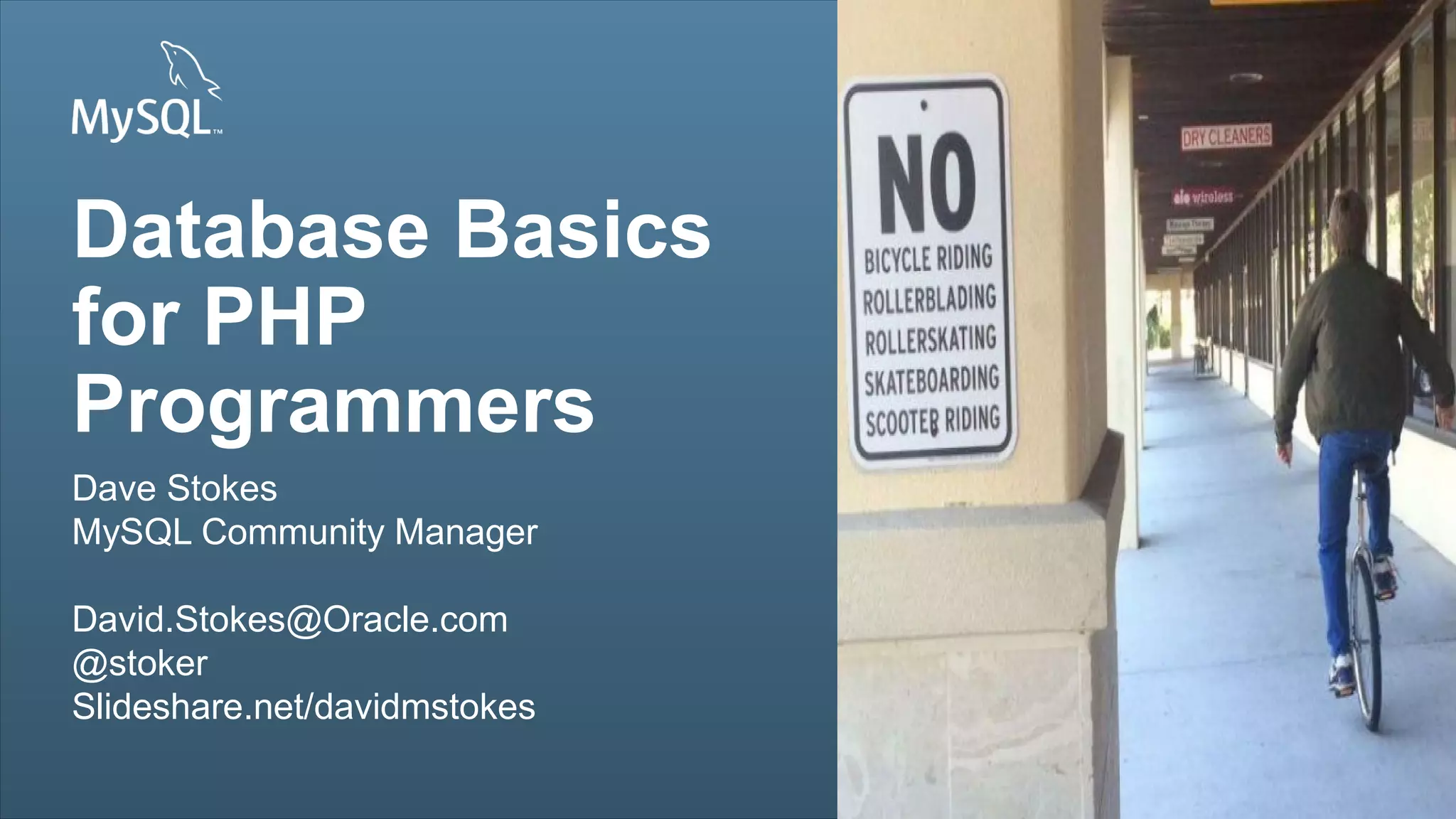
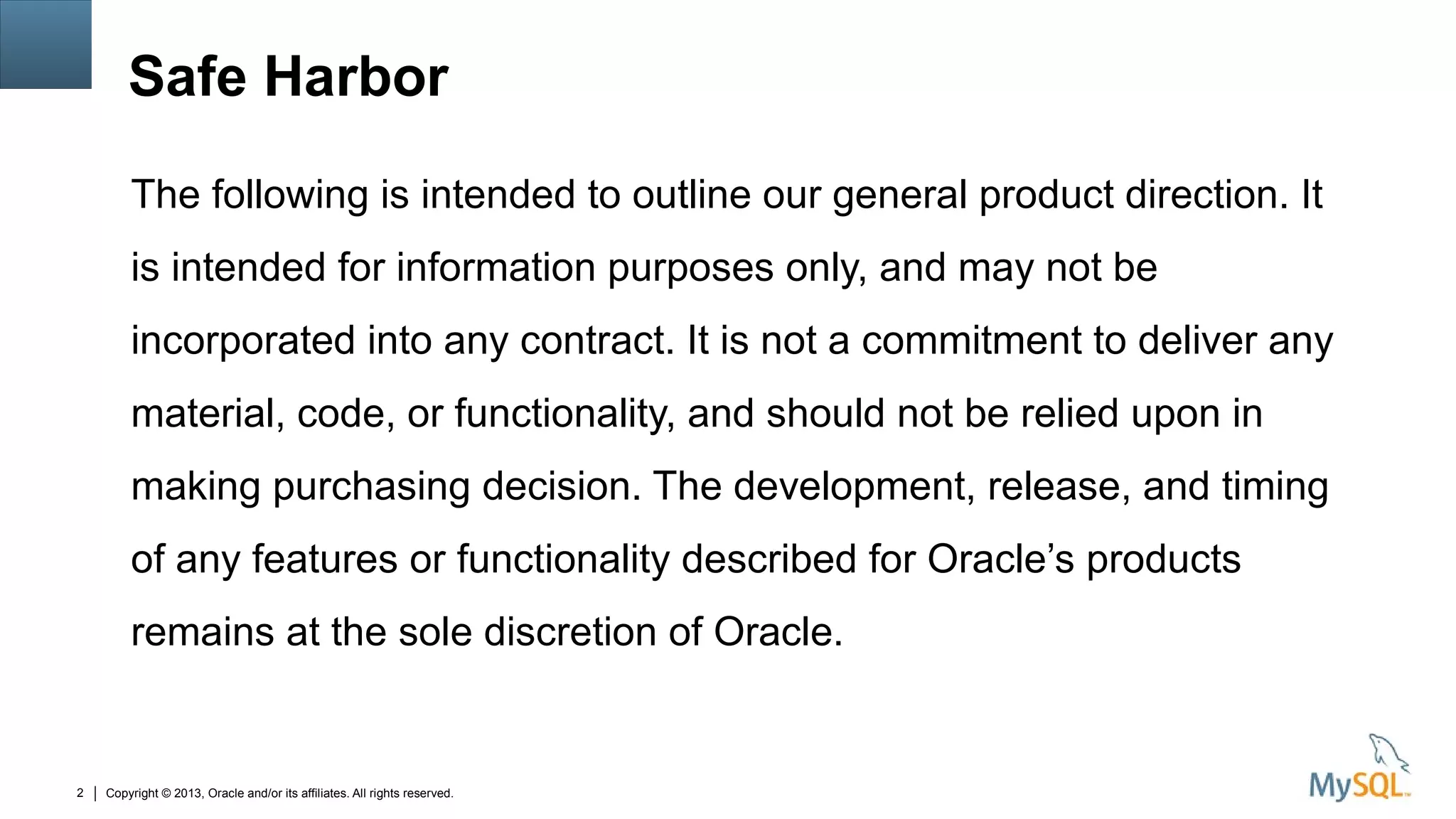
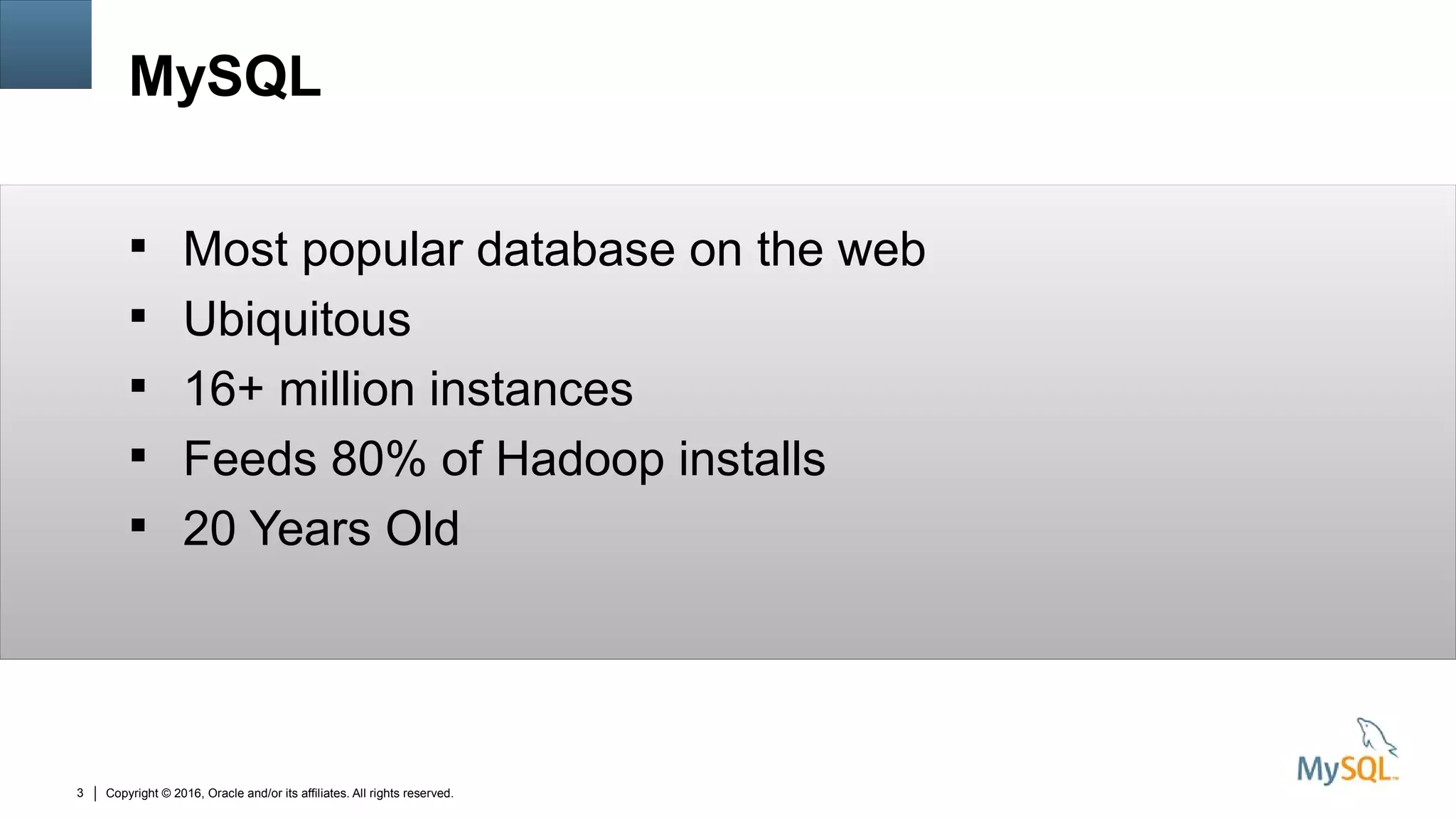
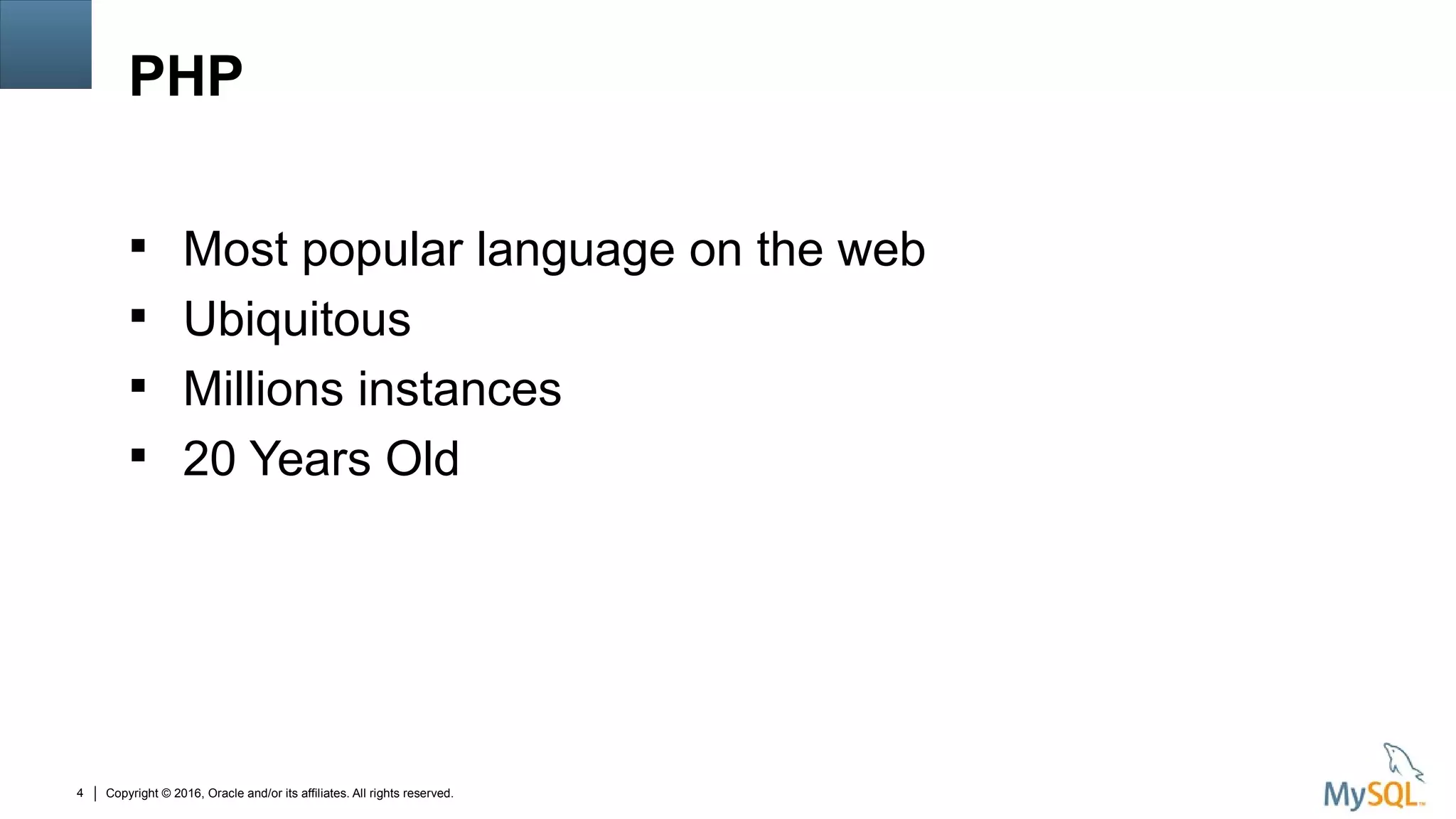
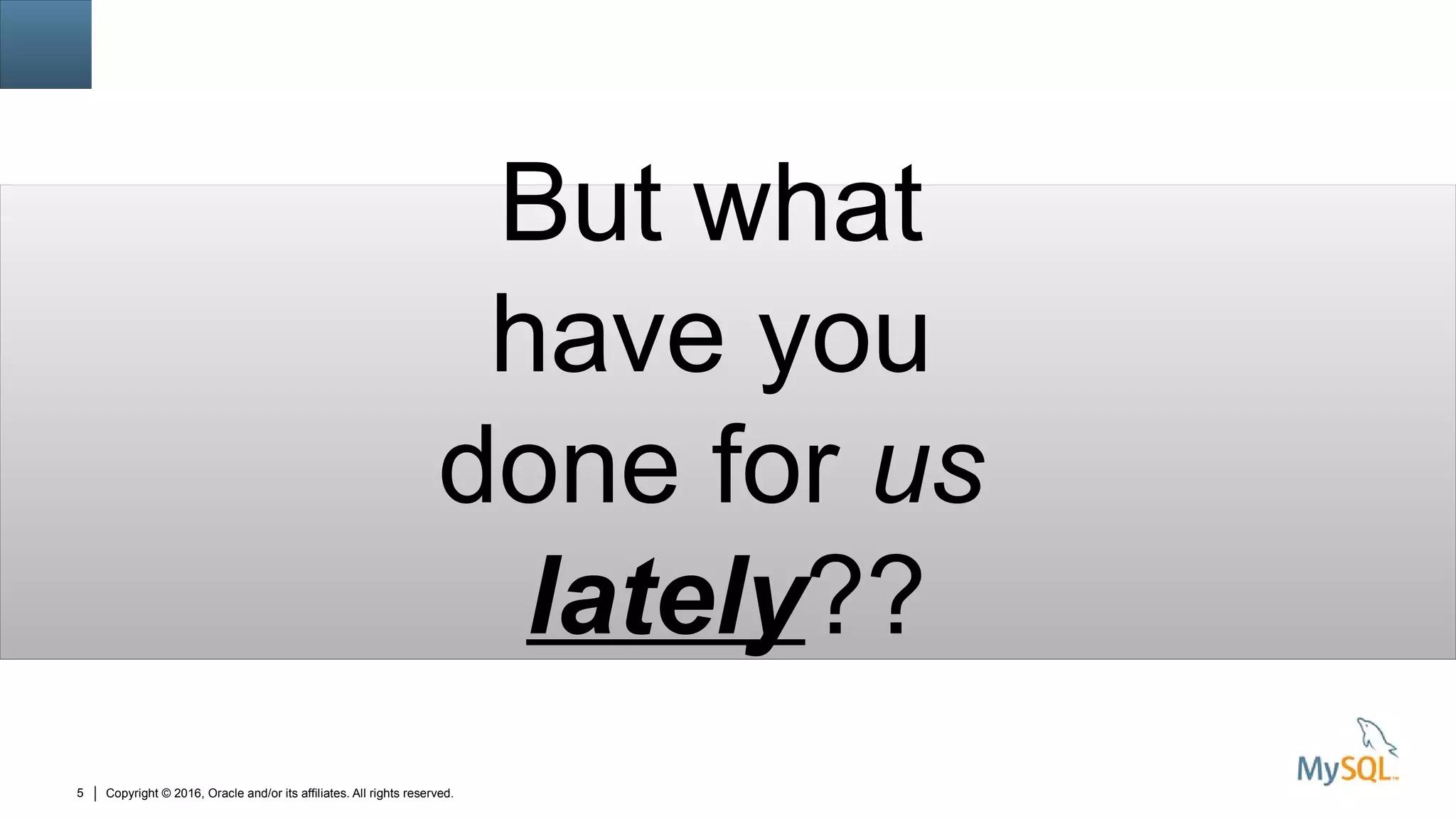
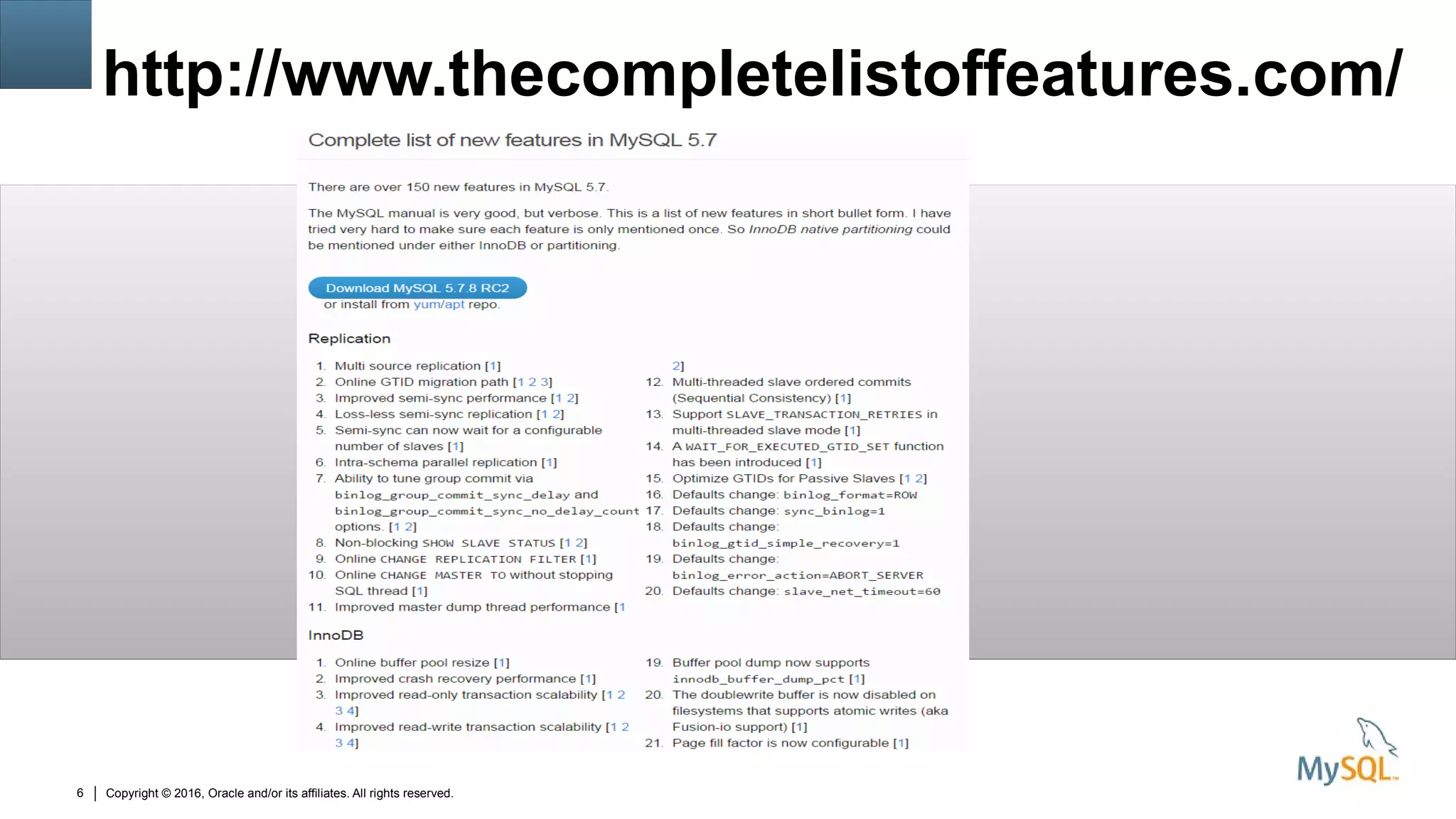
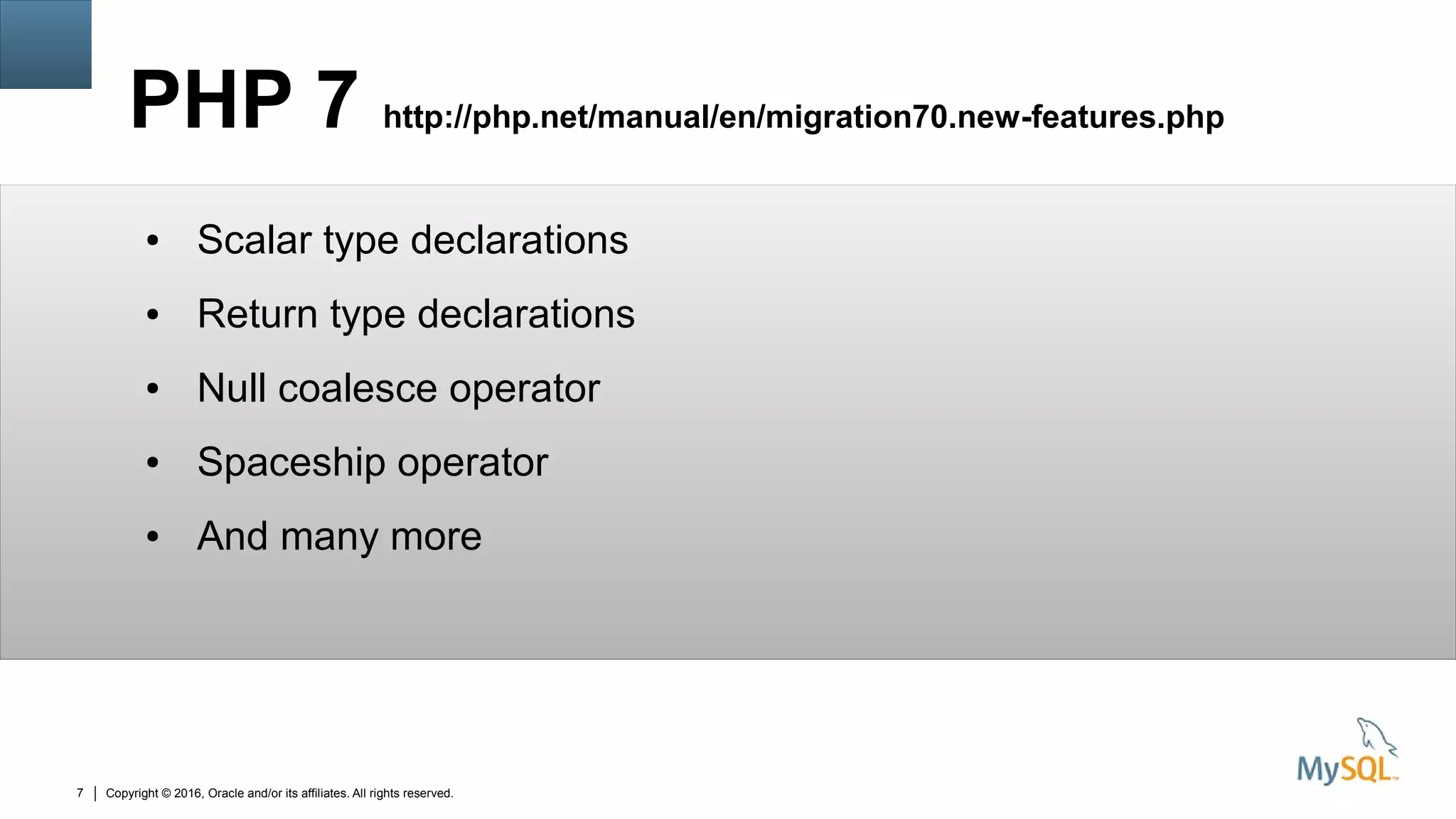
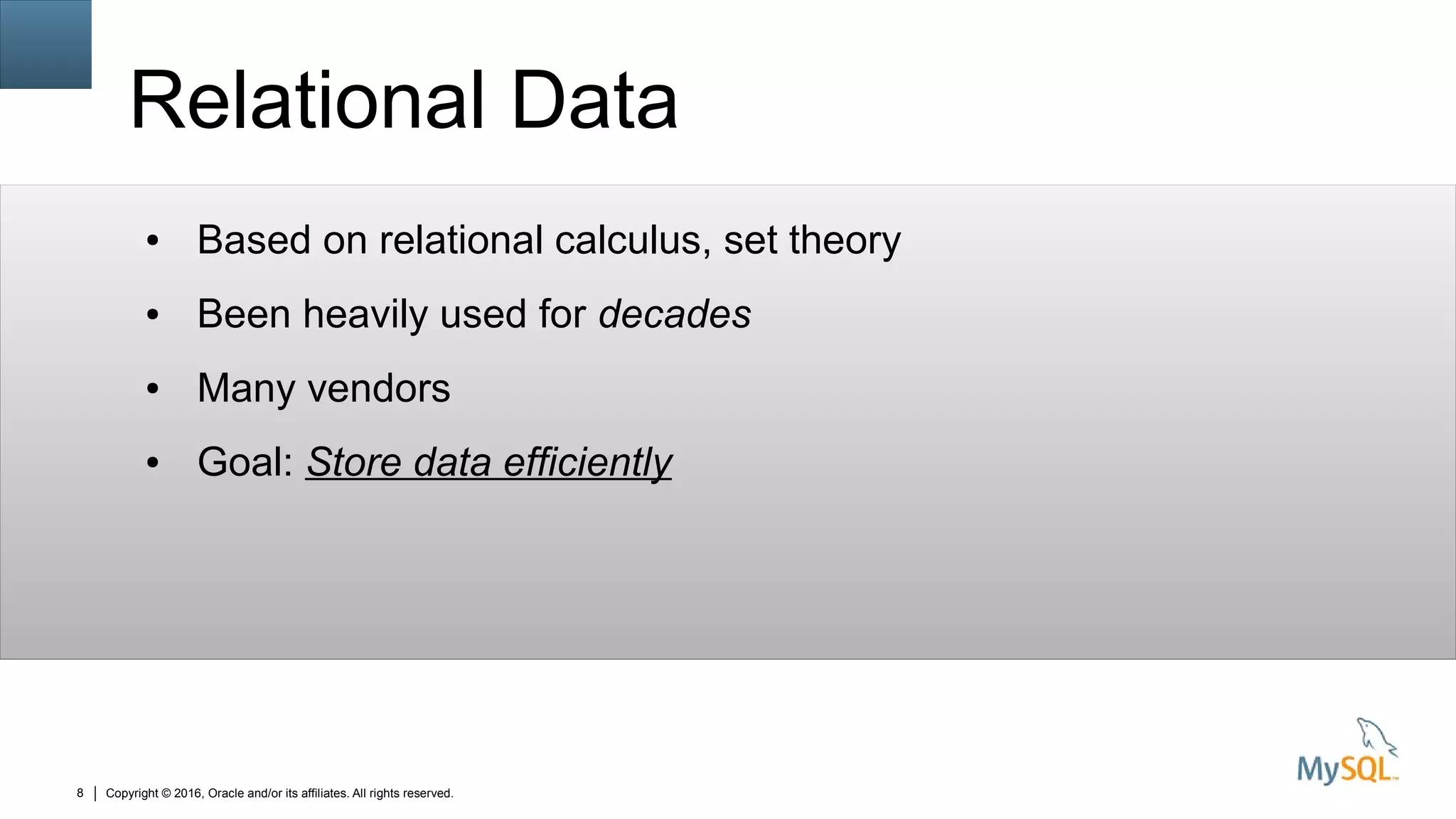
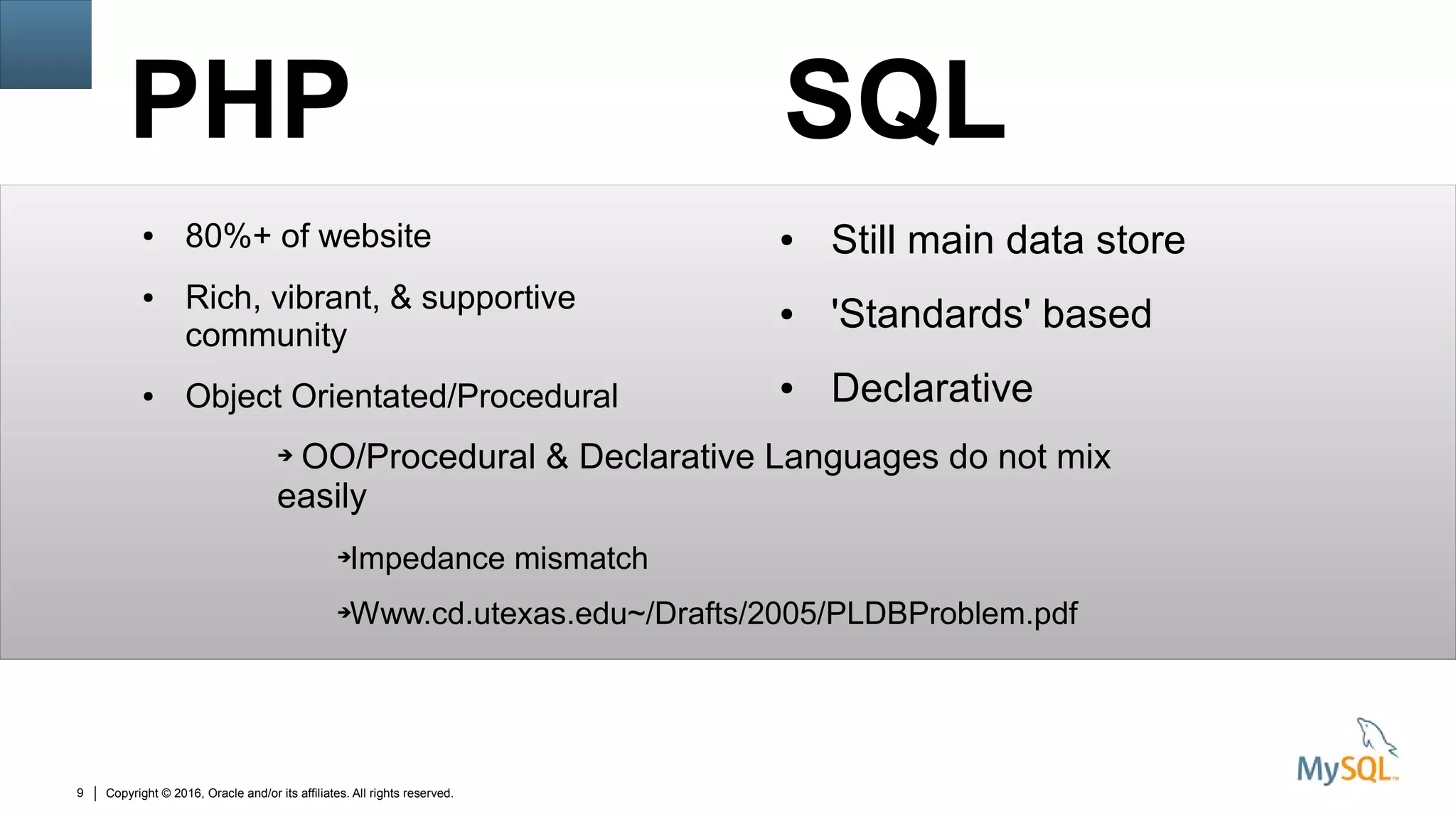

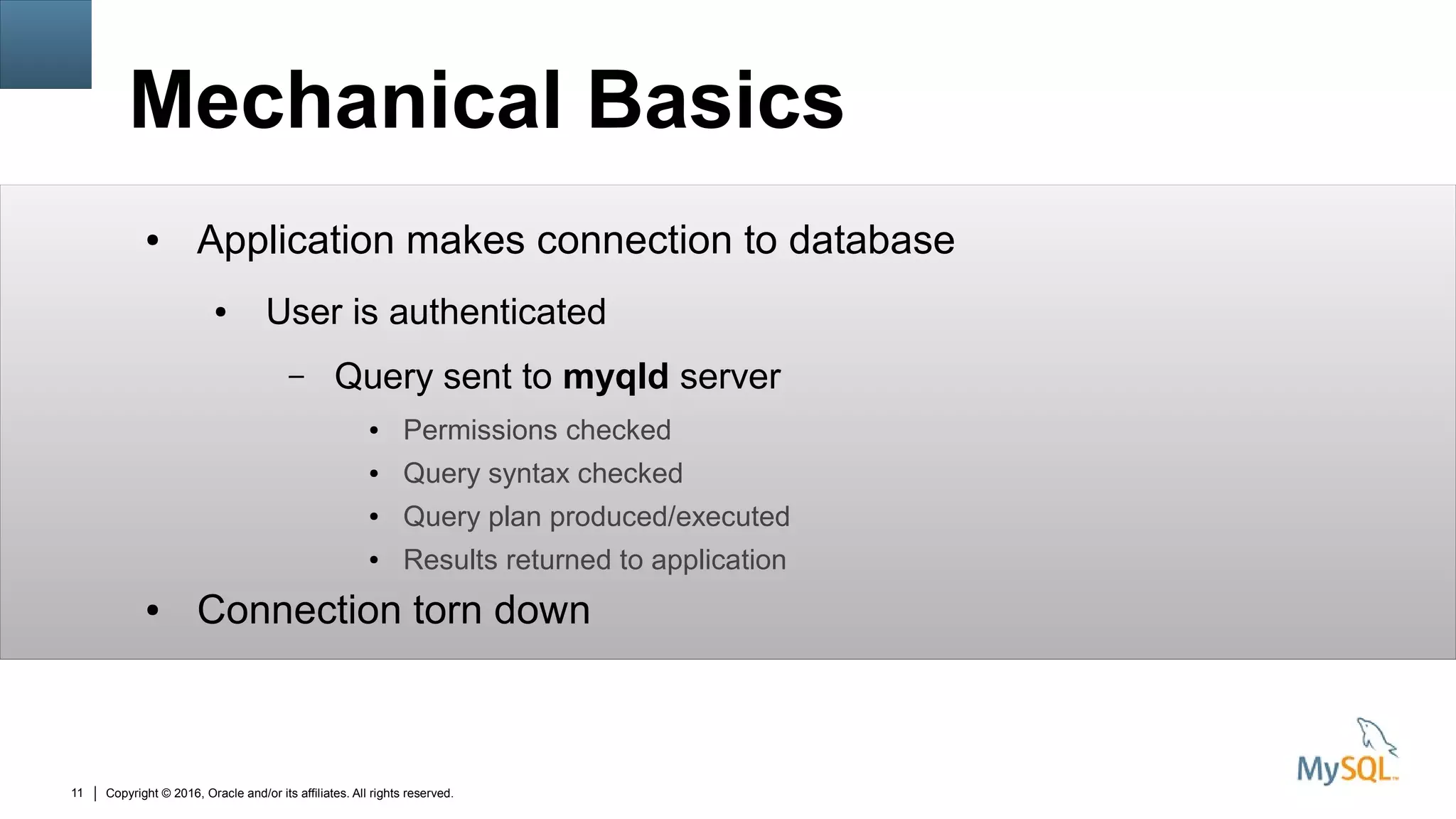
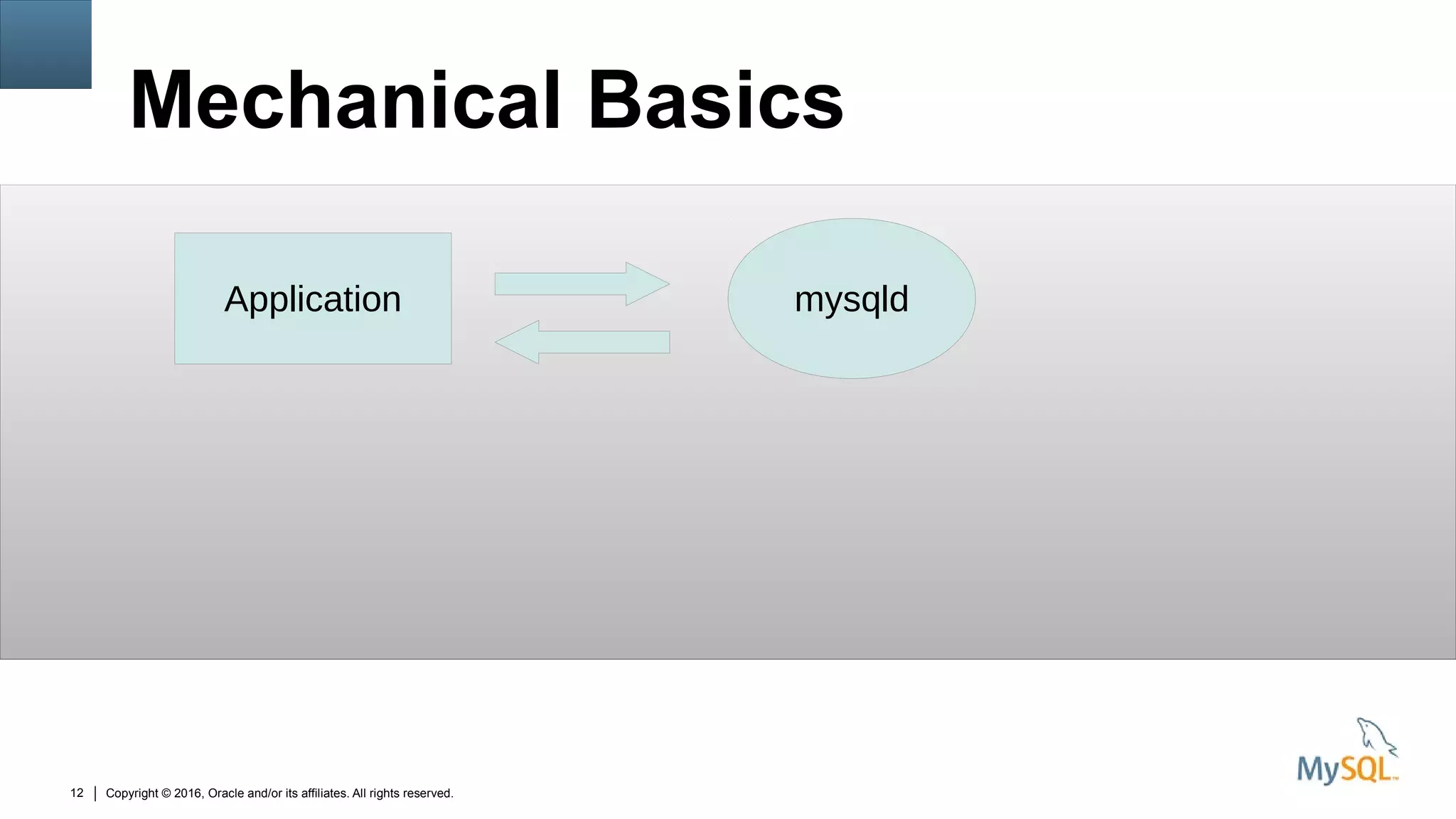
![Copyright © 2016, Oracle and/or its affiliates. All rights reserved.13
Example
<?php
$db = new mysqli('host', 'user', 'password', 'demo');
if($db->connect_errno > 0){
die('Unable to connect to database [' . $db->connect_error . ']');
}](https://image.slidesharecdn.com/skiphpdatabasebasicsl-160114041301/75/SkiPHP-Database-Basics-for-PHP-13-2048.jpg)
![Copyright © 2016, Oracle and/or its affiliates. All rights reserved.14
Example continues
// Performing SQL query
$my_query=
”SELECT name, show_size FROM `users` WHERE `active` = 1”;
$if(!$result = $db->query($my_query)){
die('There was an error running the query [' . $db->error . ']');
}](https://image.slidesharecdn.com/skiphpdatabasebasicsl-160114041301/75/SkiPHP-Database-Basics-for-PHP-14-2048.jpg)
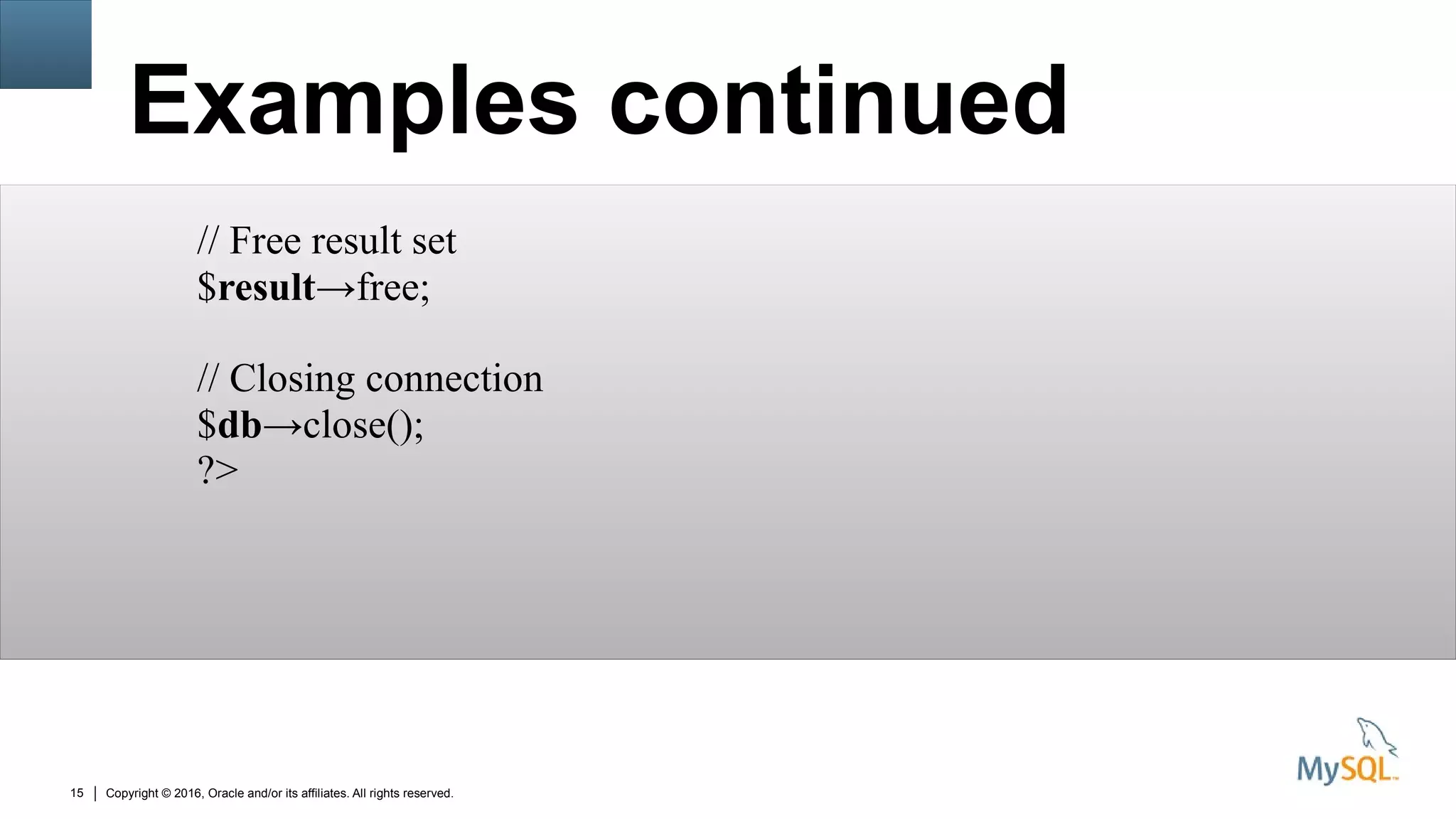
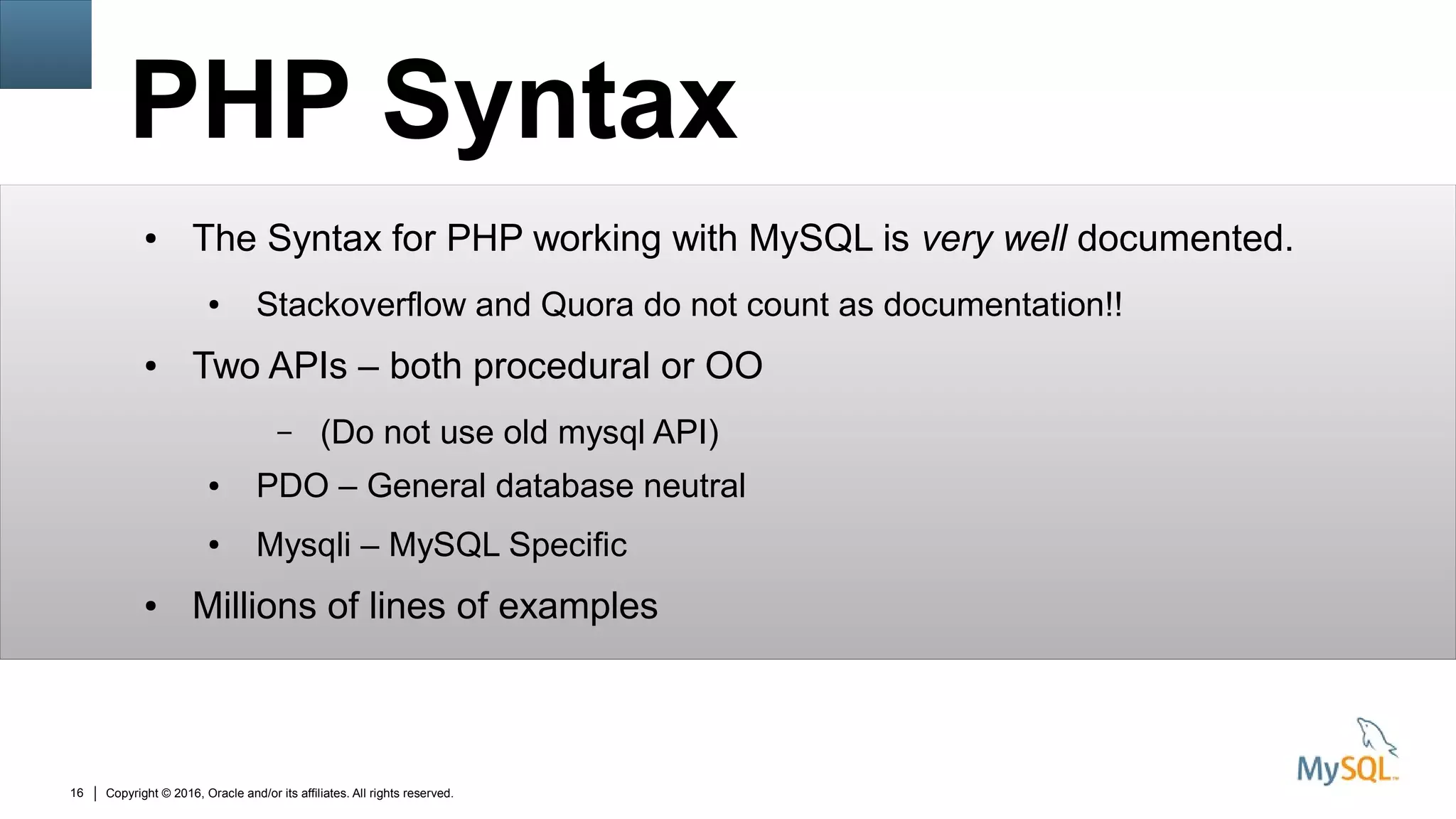
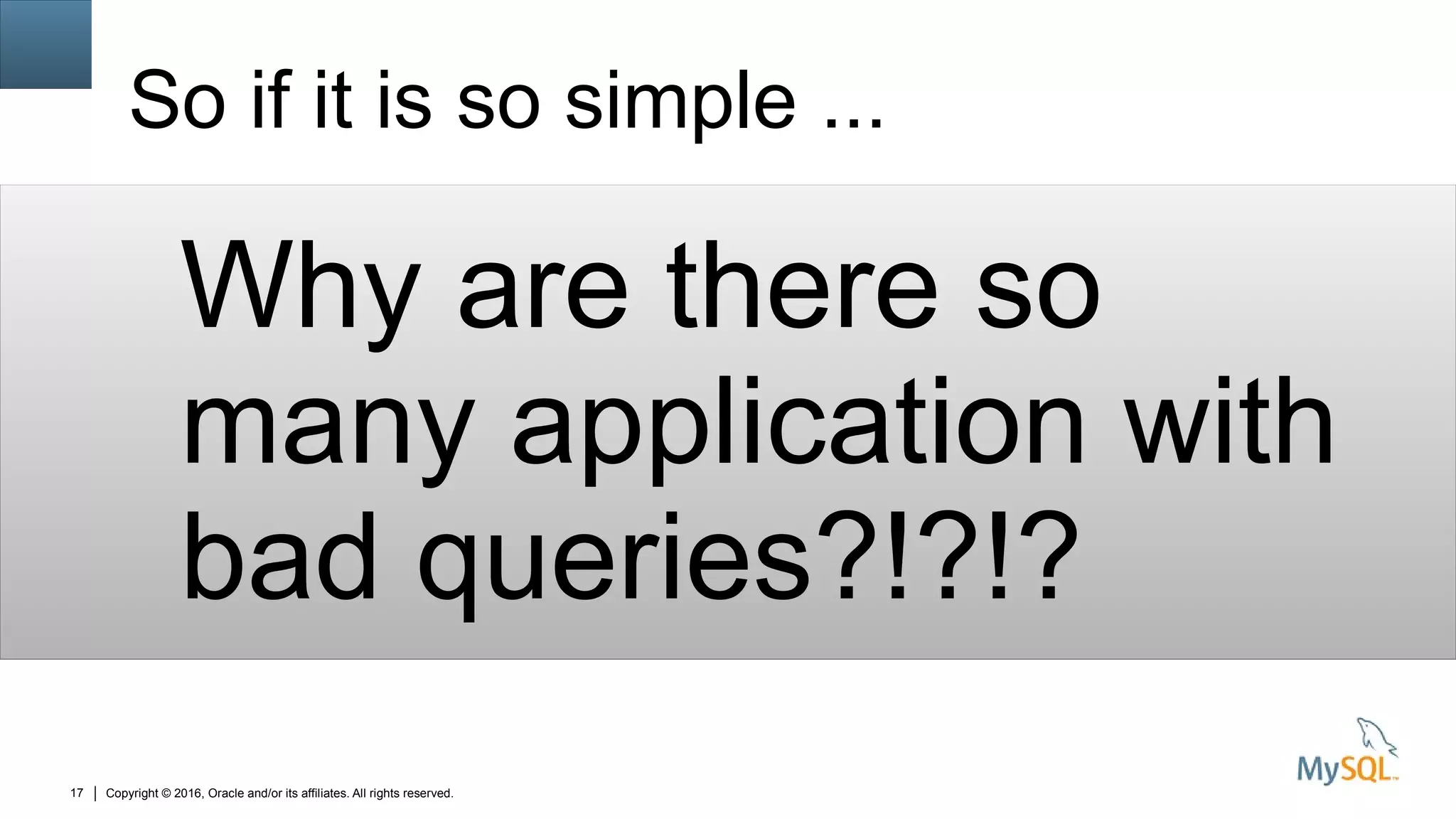
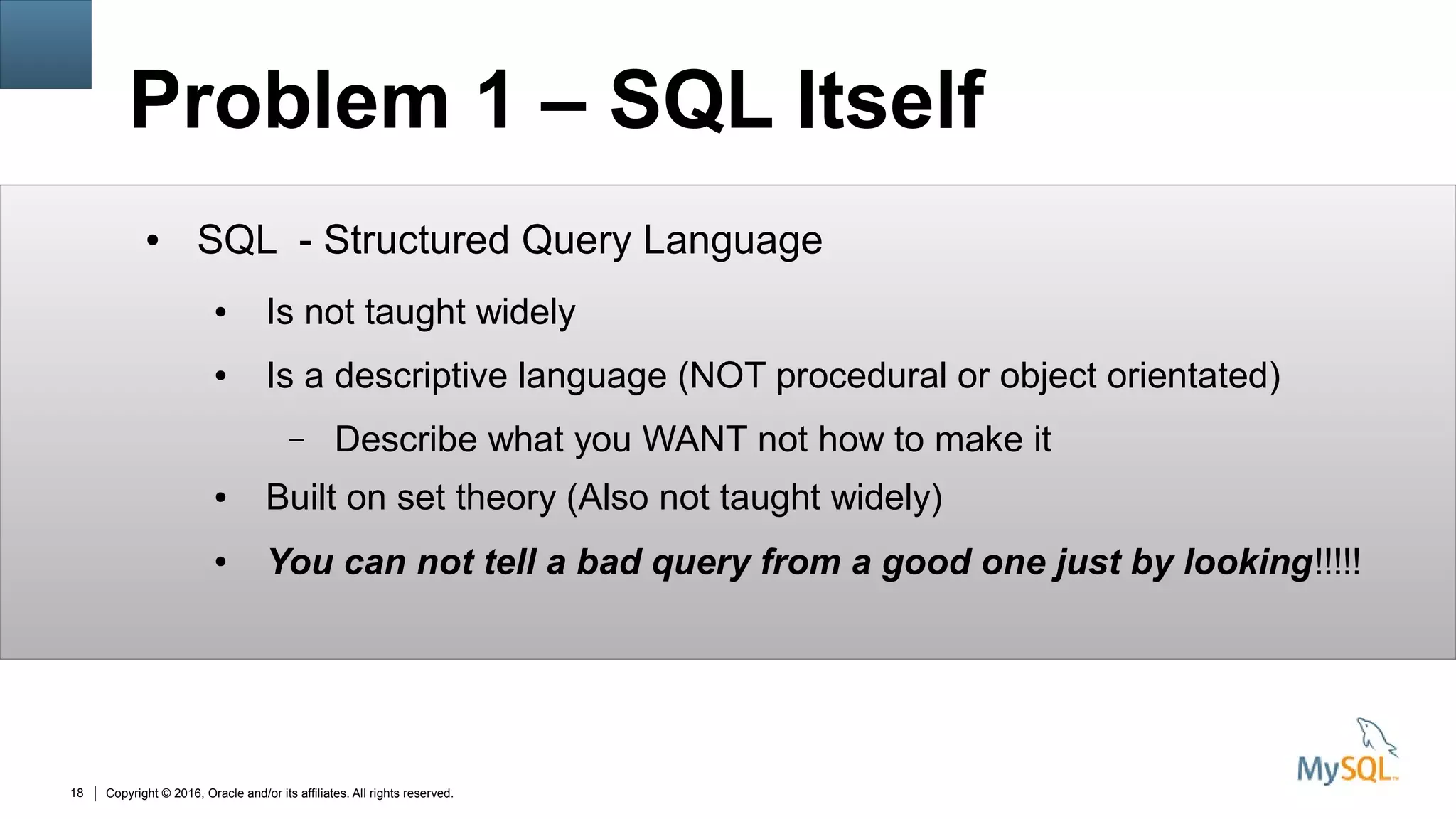
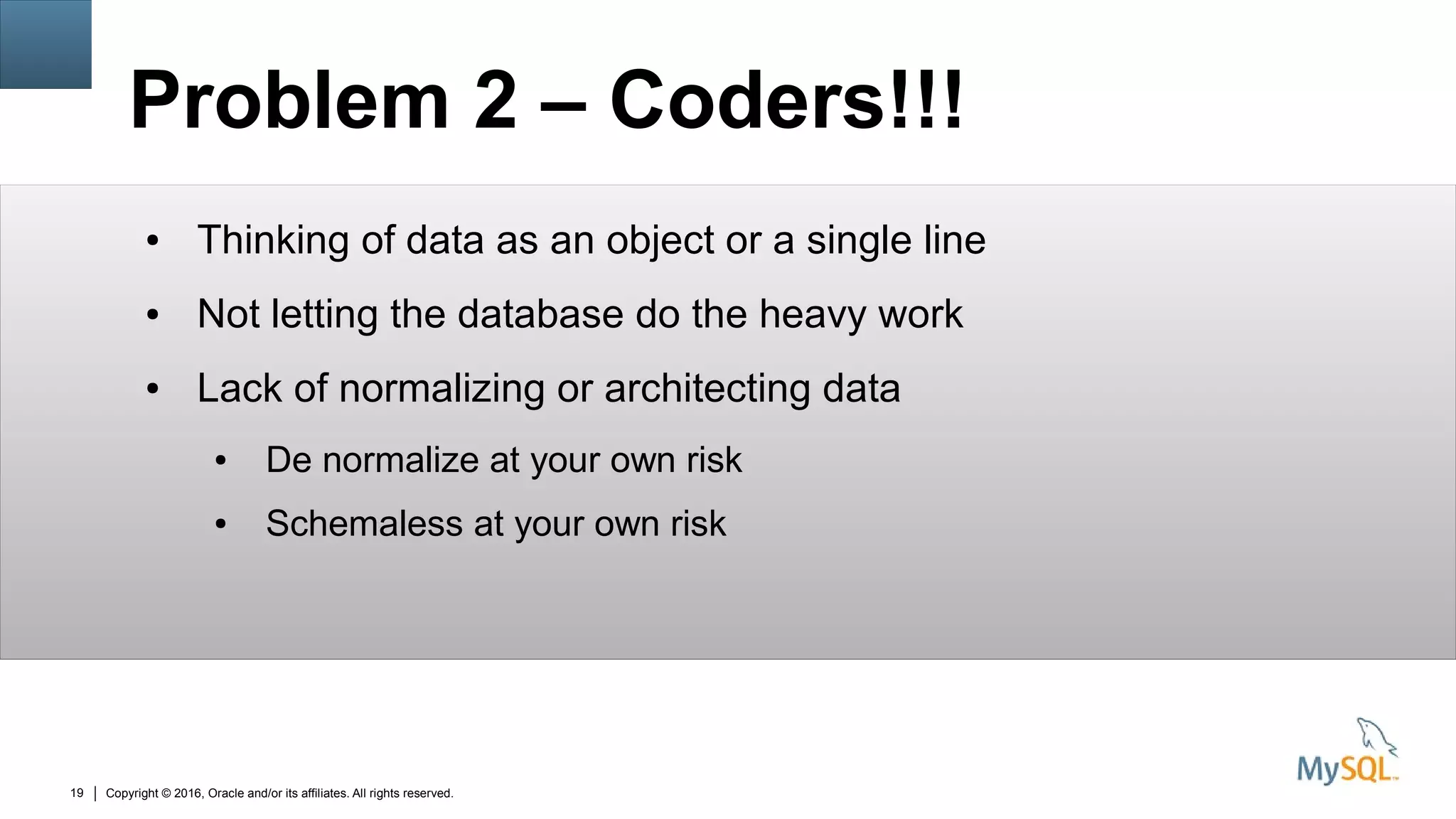
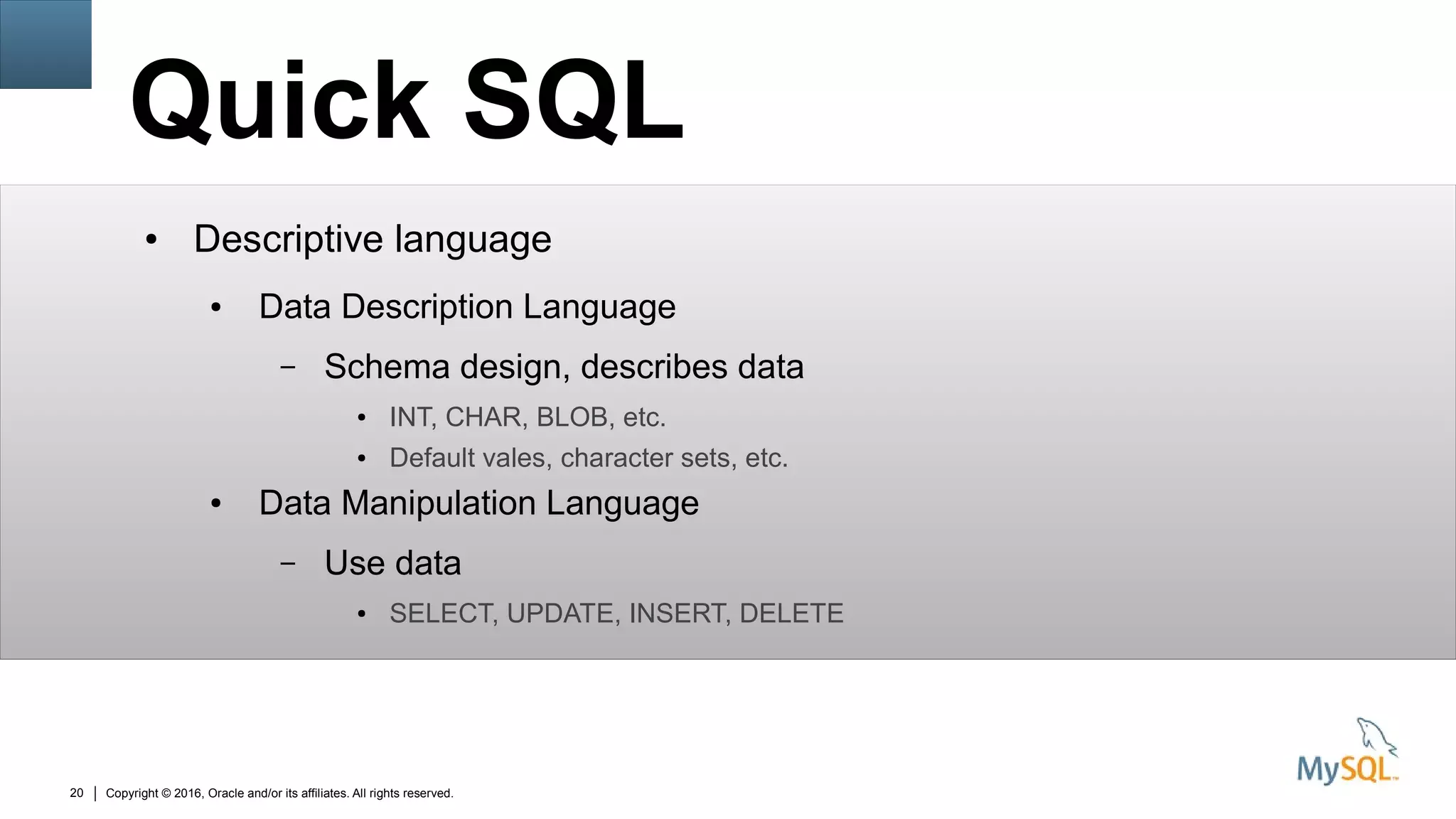
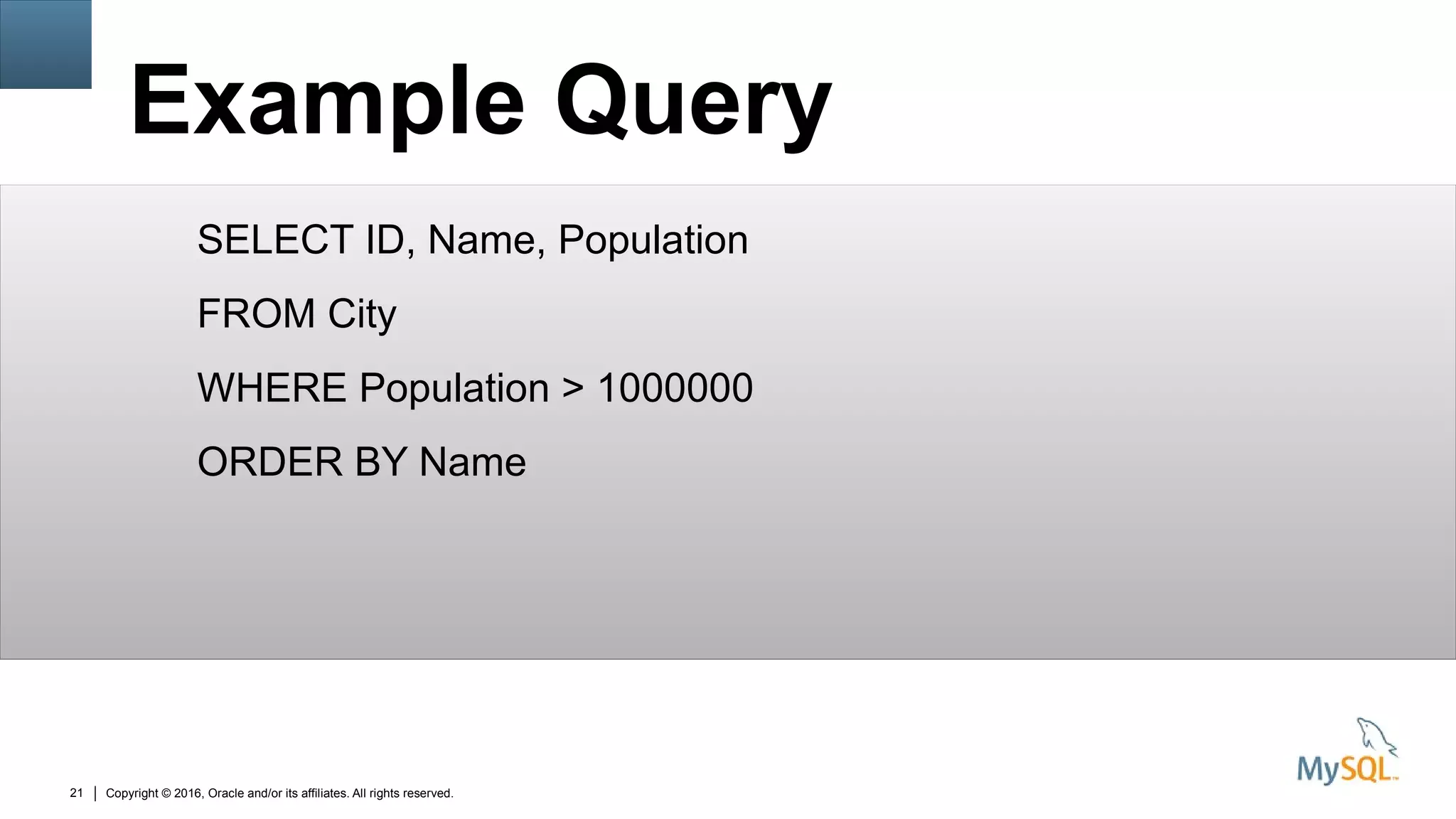
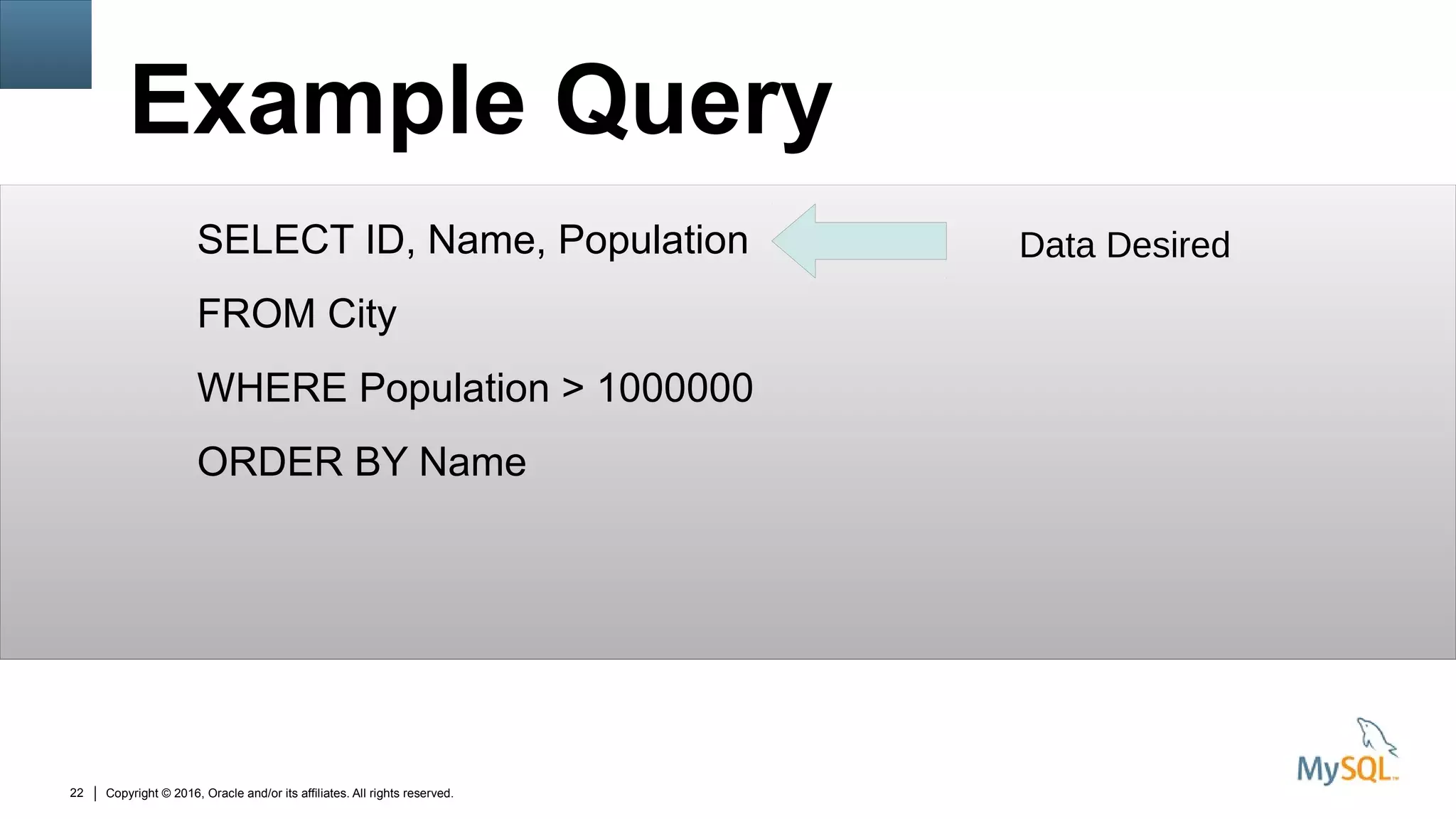
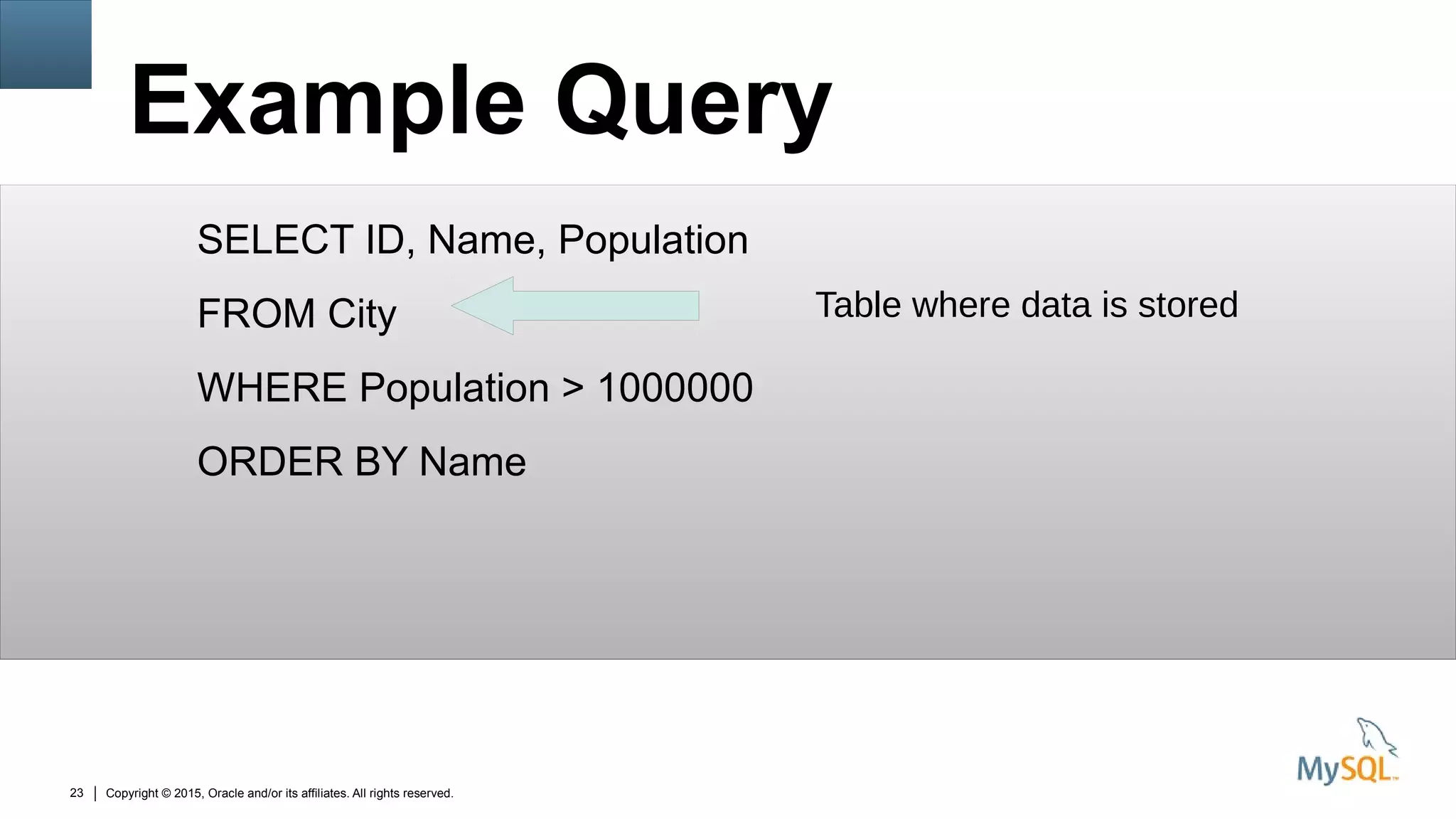
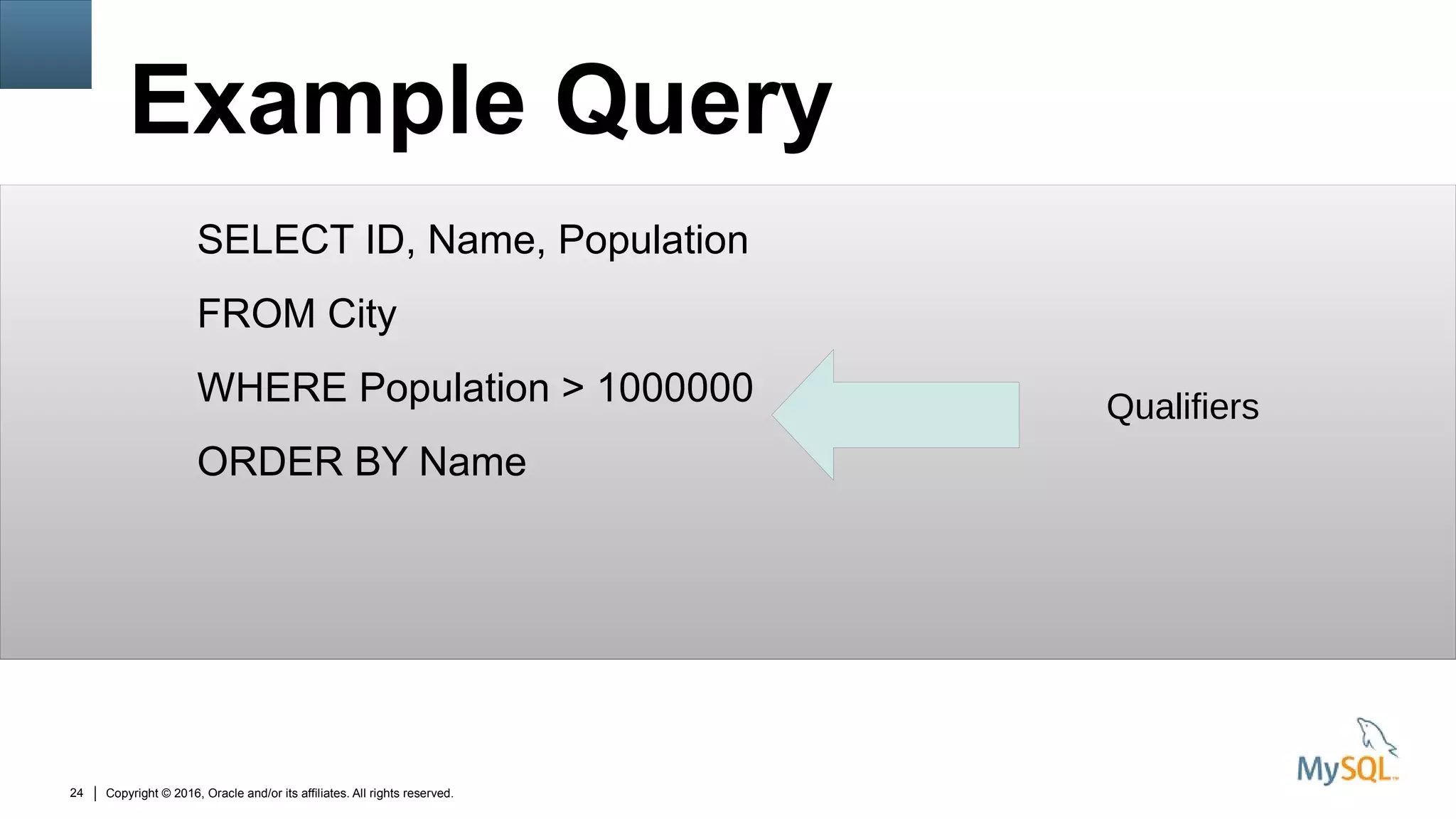
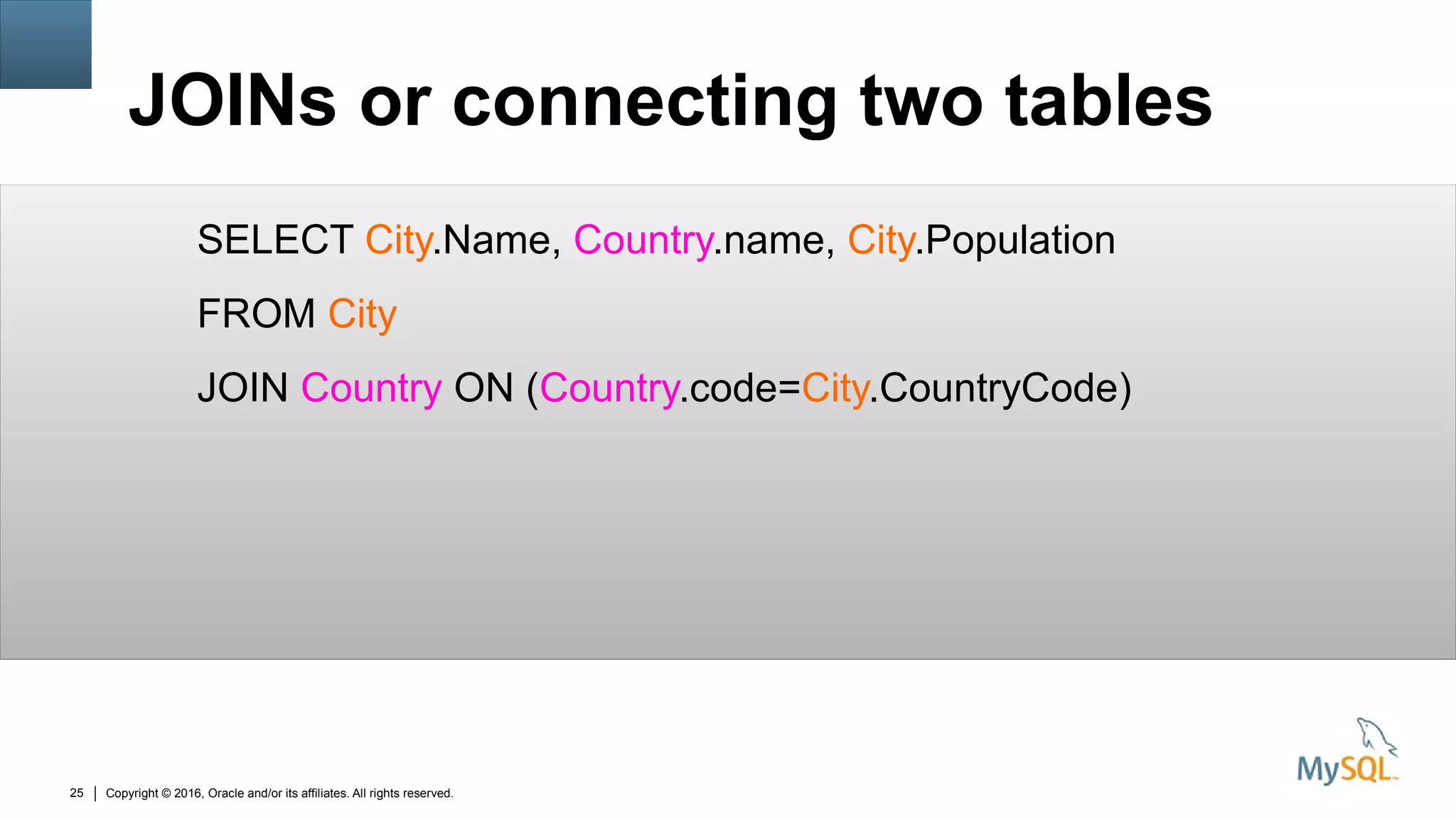
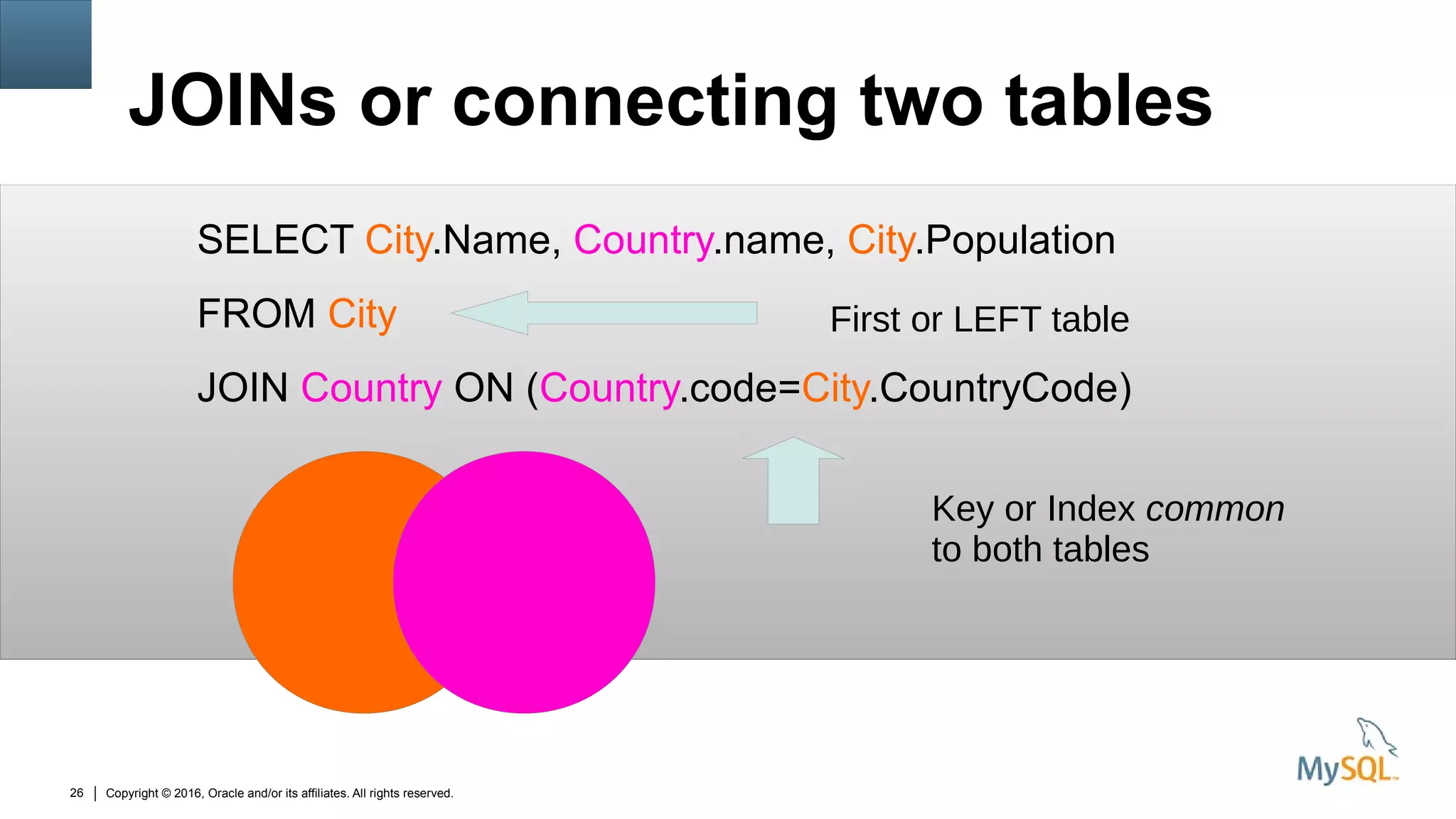
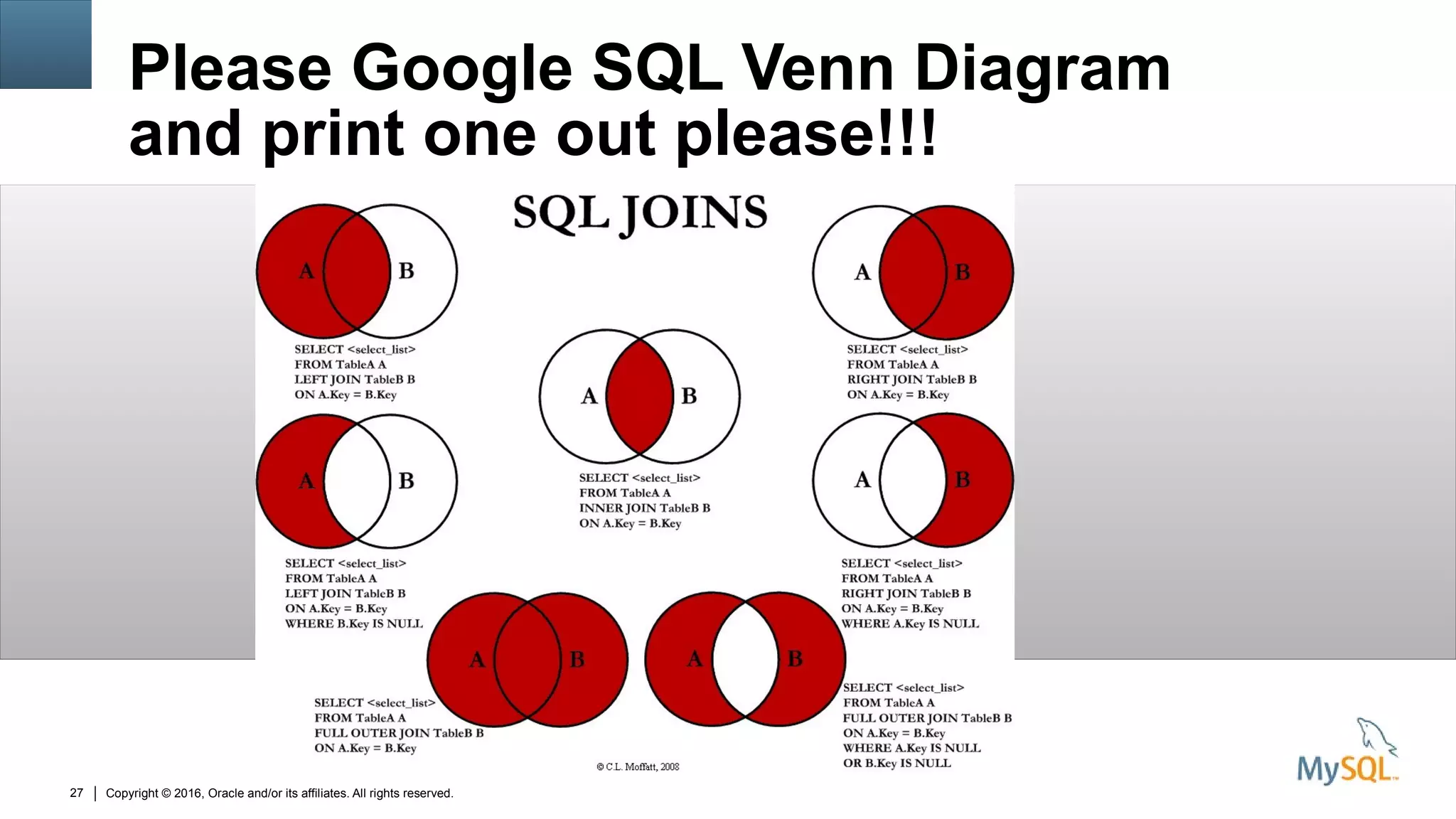
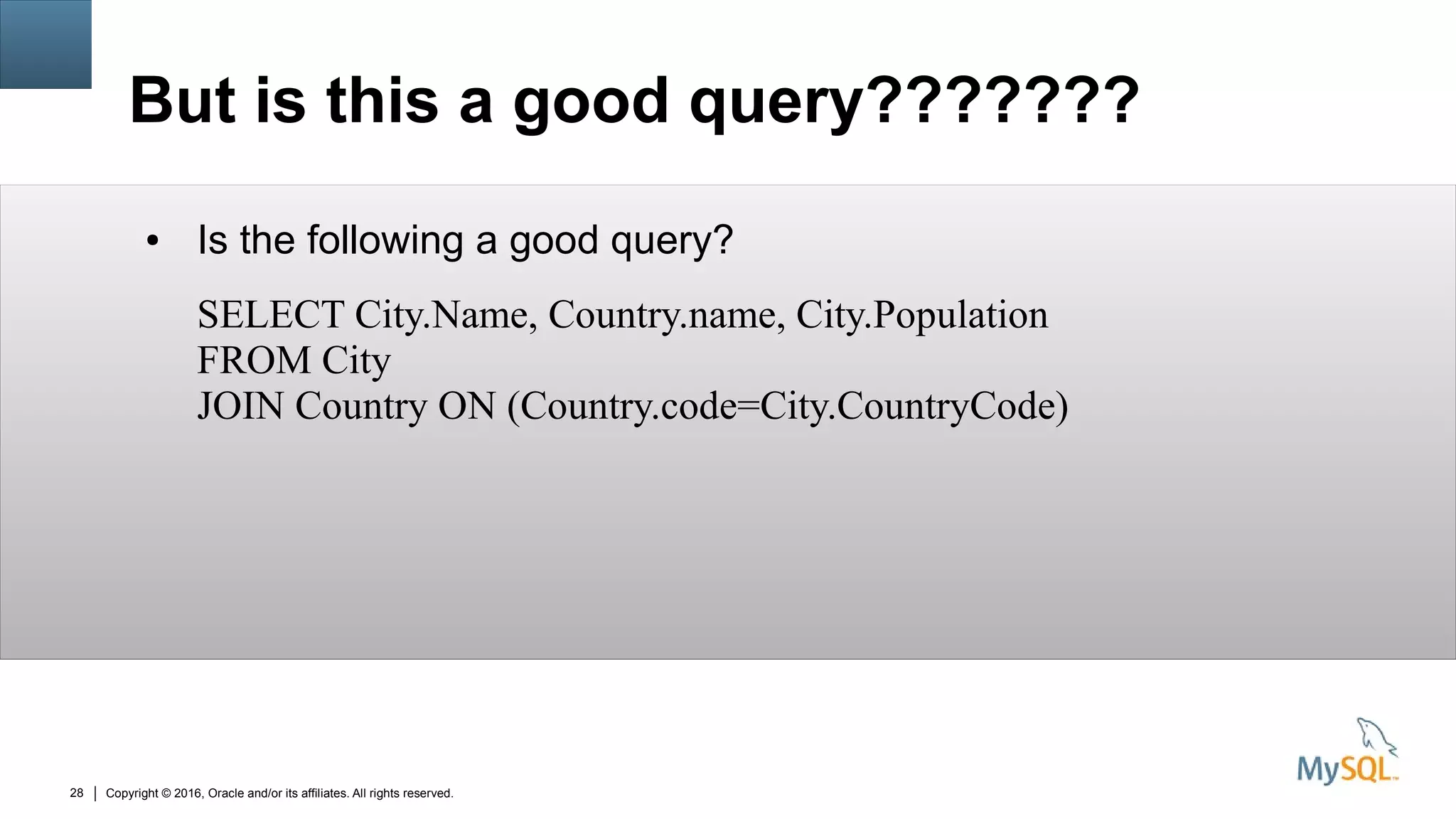
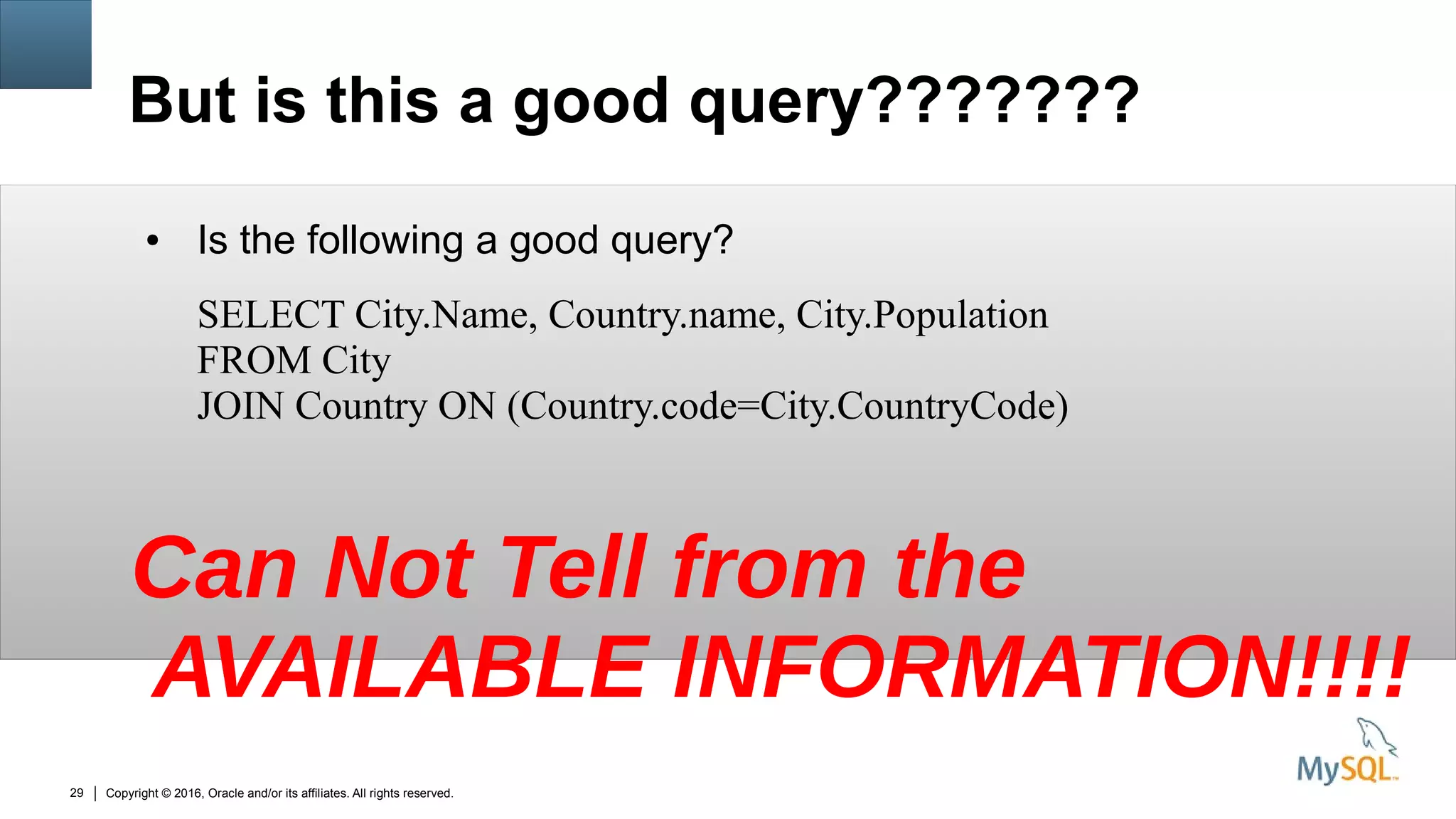
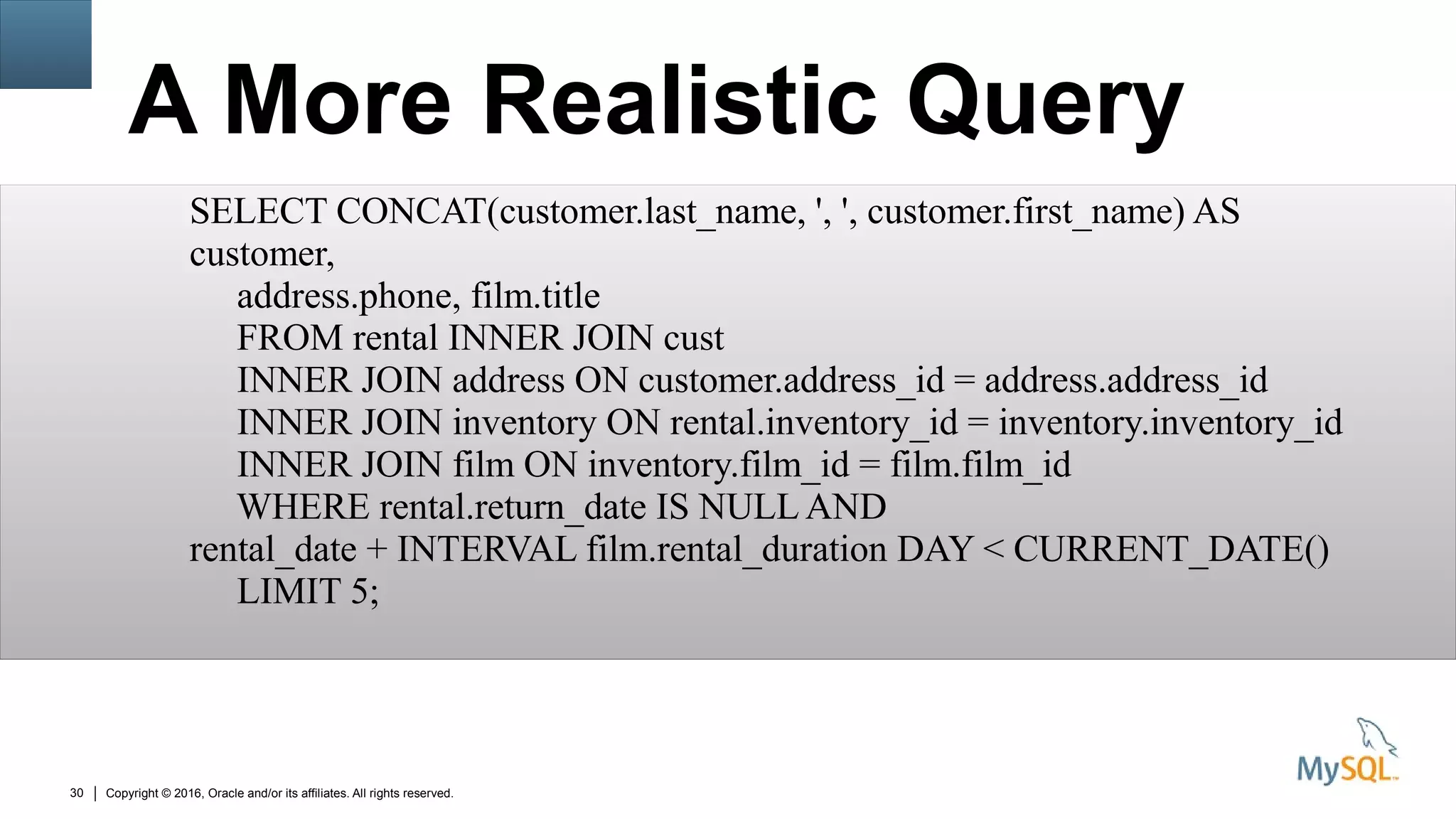
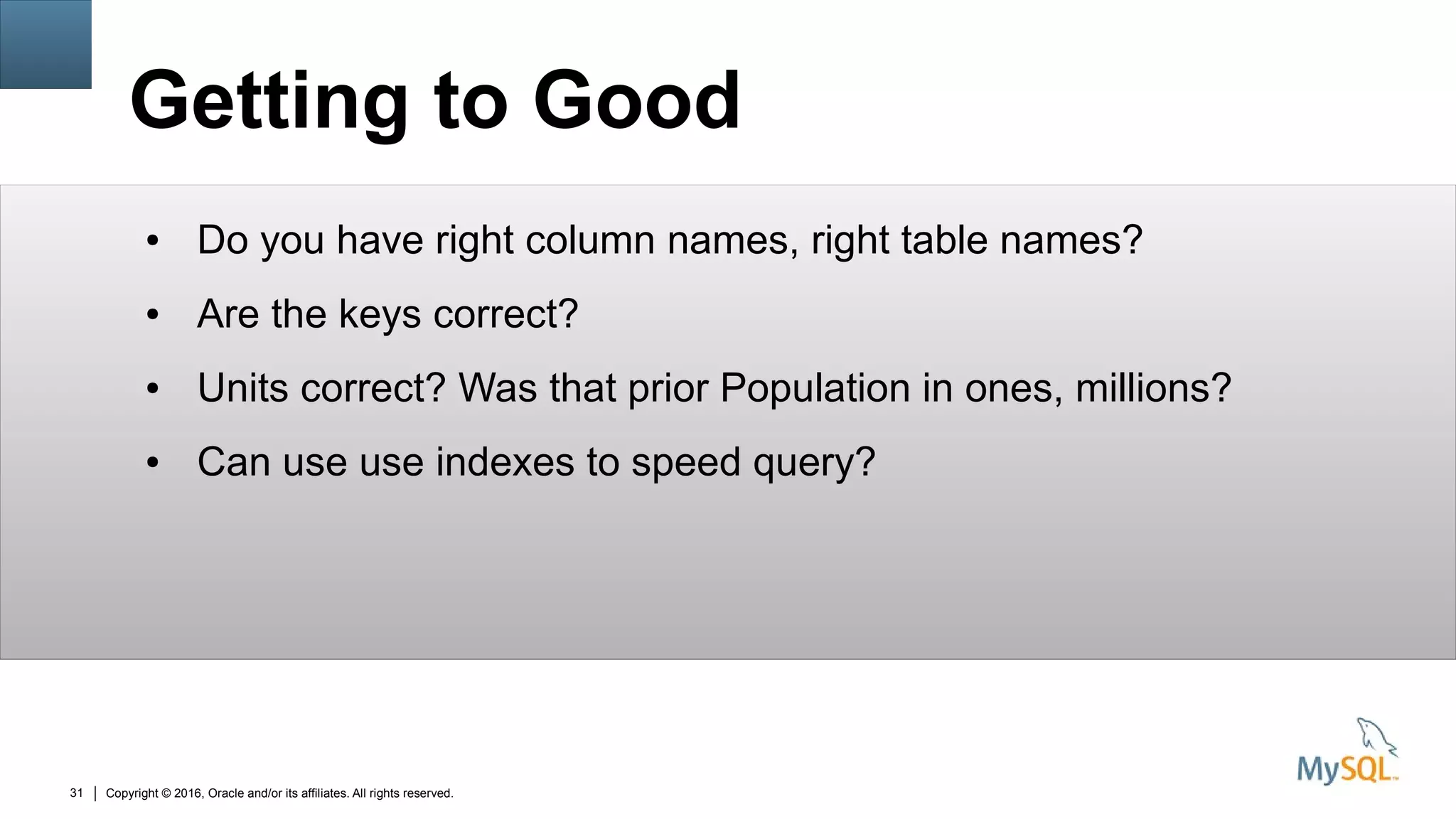
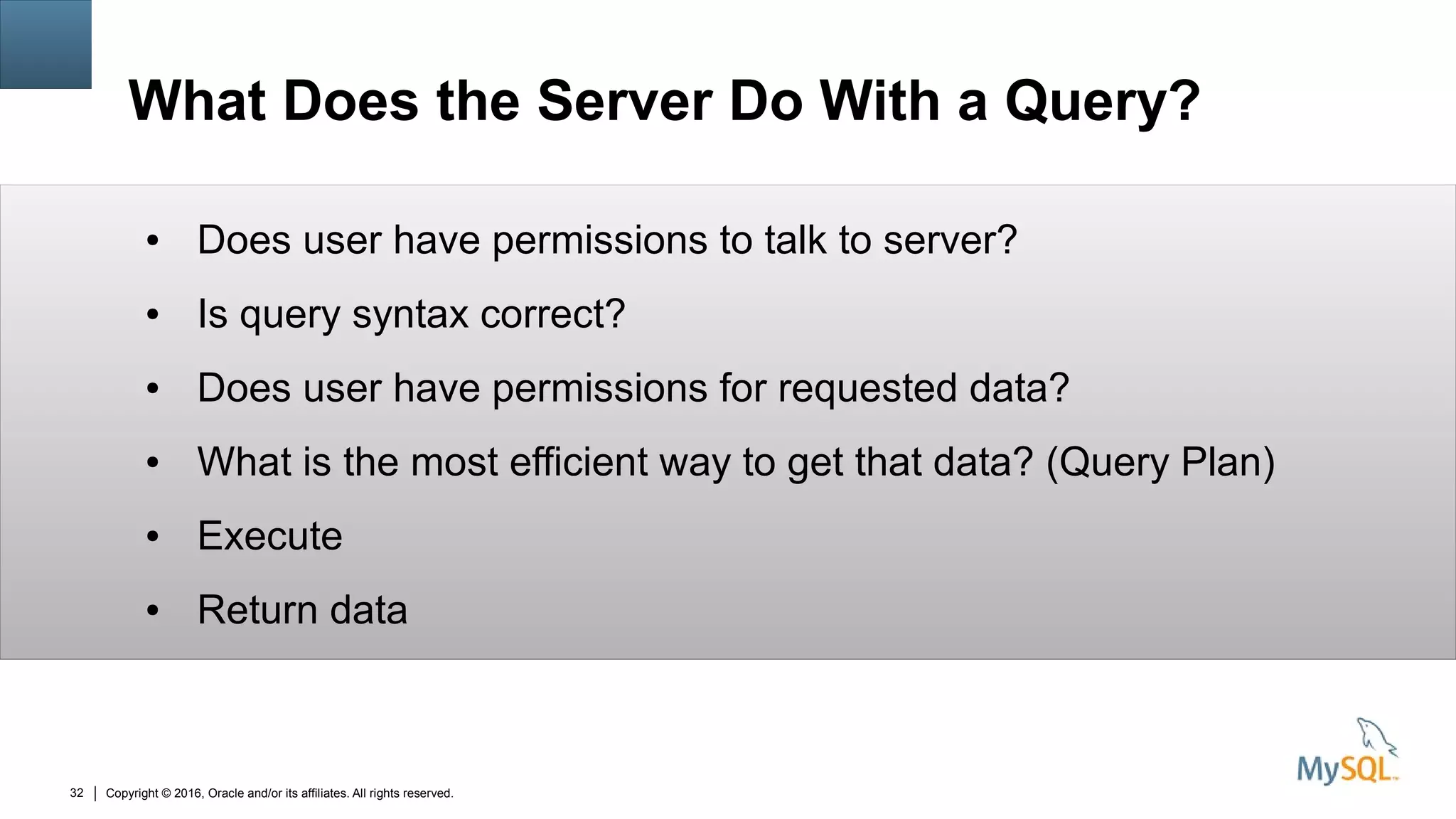
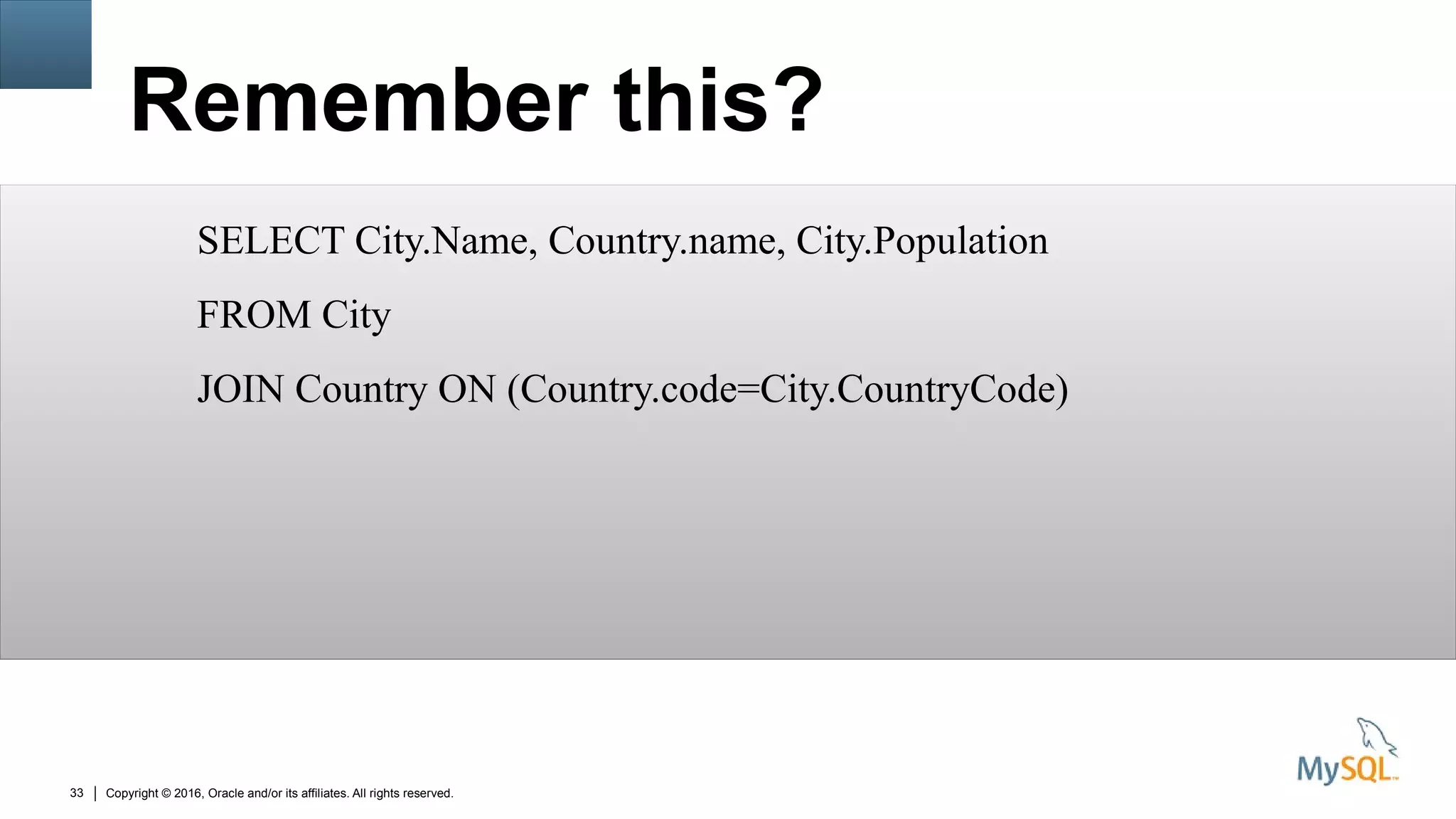
![Copyright © 2016, Oracle and/or its affiliates. All rights reserved.34
It generates a 63 line Optimizer Trace
{
"query_block": {
"select_id": 1,
"cost_info": {
"query_cost": "5132.14"
},
"nested_loop": [
{
"table": {
"table_name": "Country",
"access_type": "ALL",
"possible_keys": [
"PRIMARY"
],
"rows_examined_per_scan": 239,
"rows_produced_per_join": 239,
"filtered": "100.00",
"cost_info": {
"read_cost": "6.00",
"eval_cost": "47.80",
"prefix_cost": "53.80",
"data_read_per_join": "61K"
},
"used_columns": [
"Code",
"Name"
]
}
},
{
"table": {
"table_name": "City",
"access_type": "ref",
"possible_keys": [
"CountryCode"
],
key": "CountryCode",
"used_key_parts": [
"CountryCode"
],
"key_length": "3",
"ref": [
"world.Country.Code"
],
"rows_examined_per_scan": 17,
"rows_produced_per_join": 4231,
"filtered": "100.00",
"cost_info": {
"read_cost": "4231.95",
"eval_cost": "846.39",
"prefix_cost": "5132.14",
"data_read_per_join": "727K"
},
"used_columns": [
"Name",
"CountryCode",
"Population"
]
}
}
]
}
}](https://image.slidesharecdn.com/skiphpdatabasebasicsl-160114041301/75/SkiPHP-Database-Basics-for-PHP-34-2048.jpg)
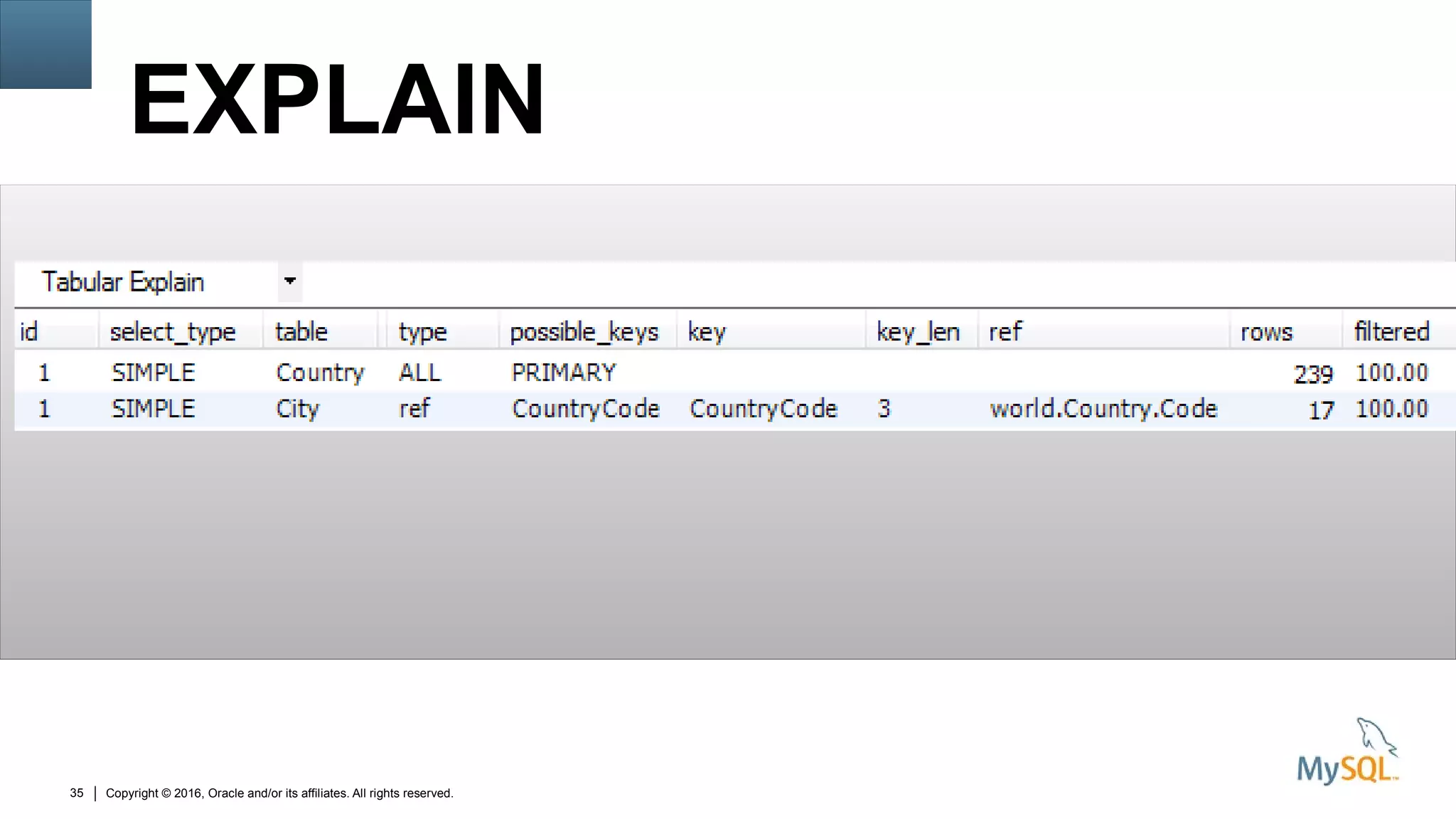
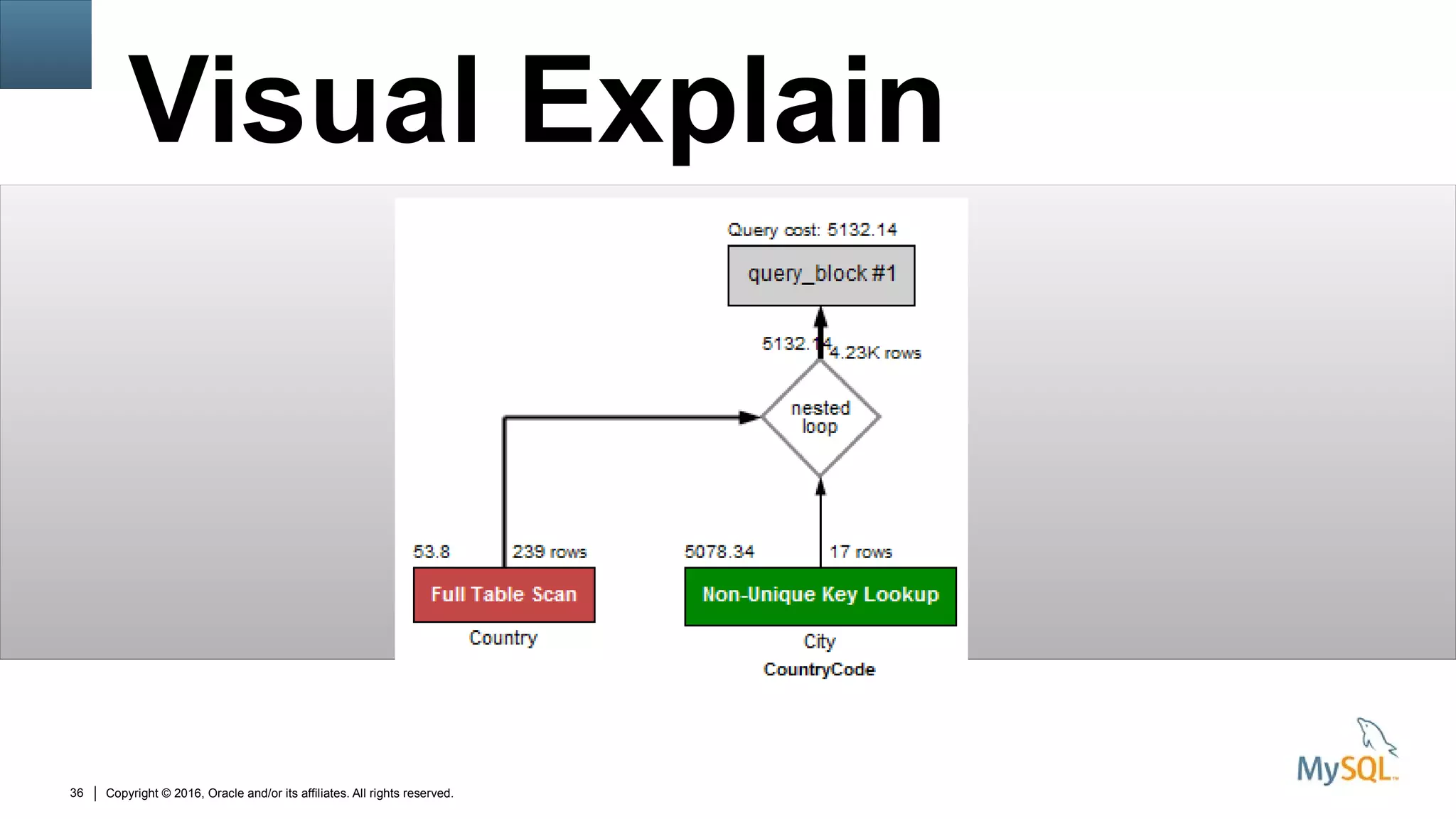
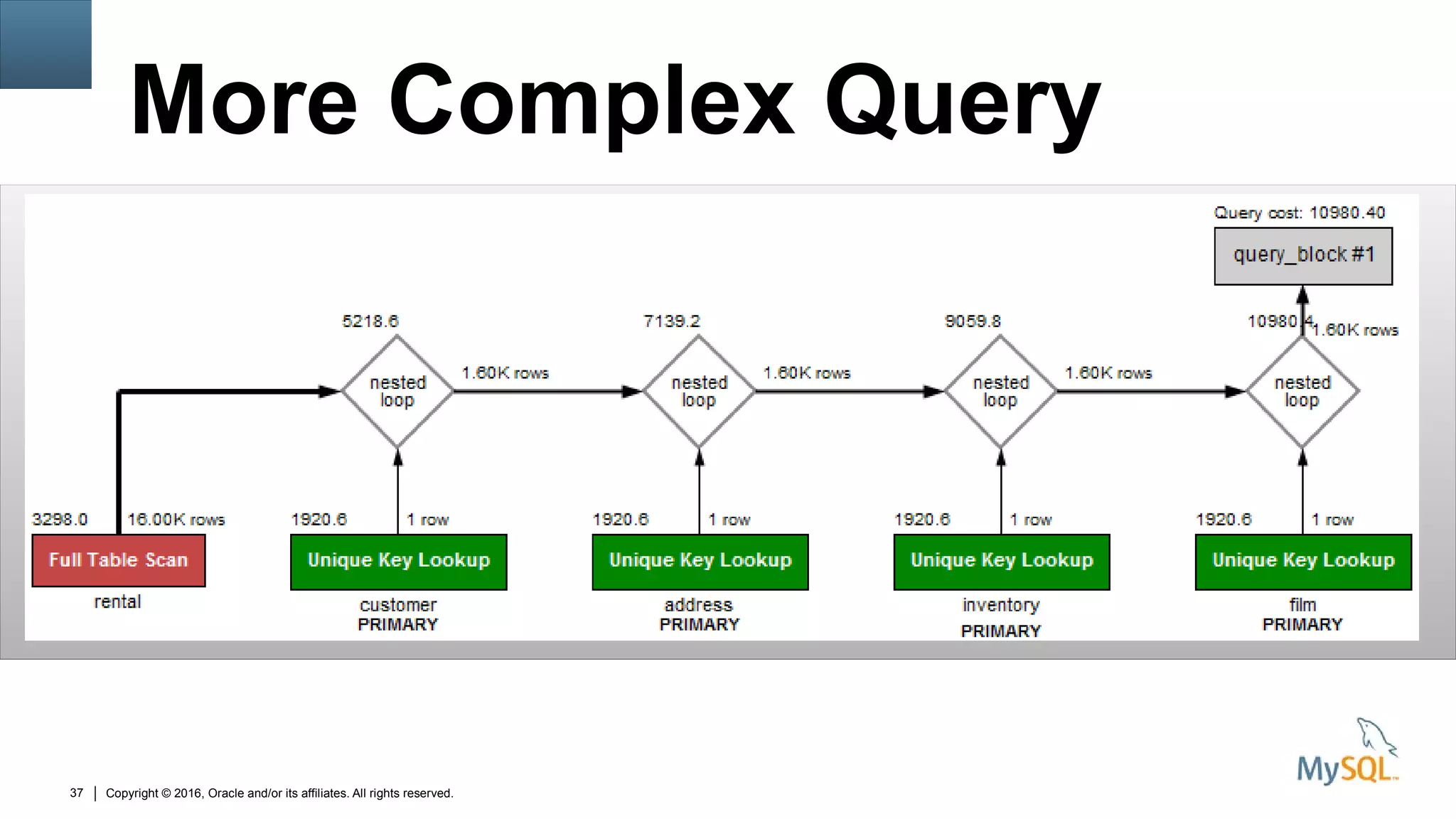
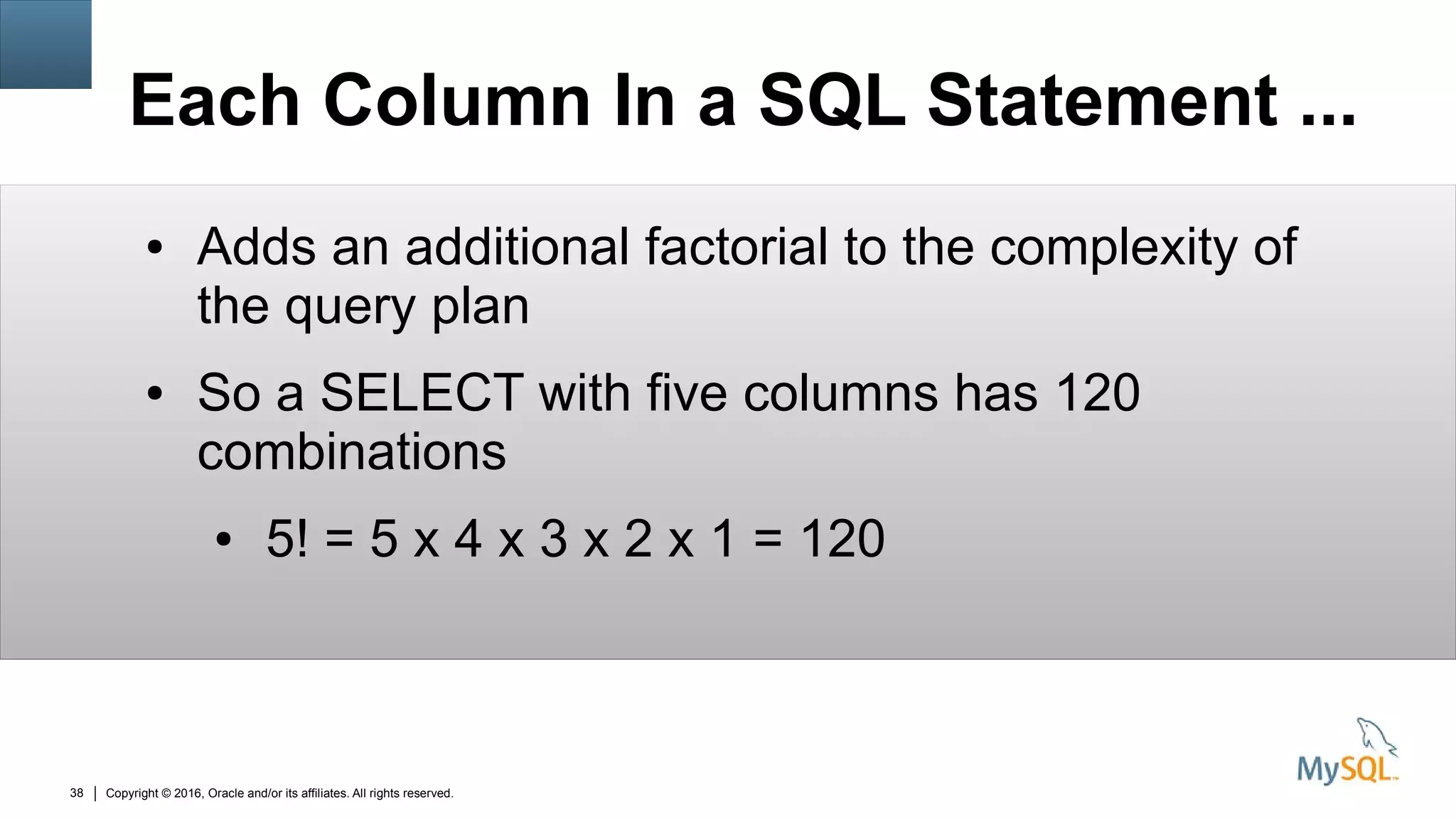
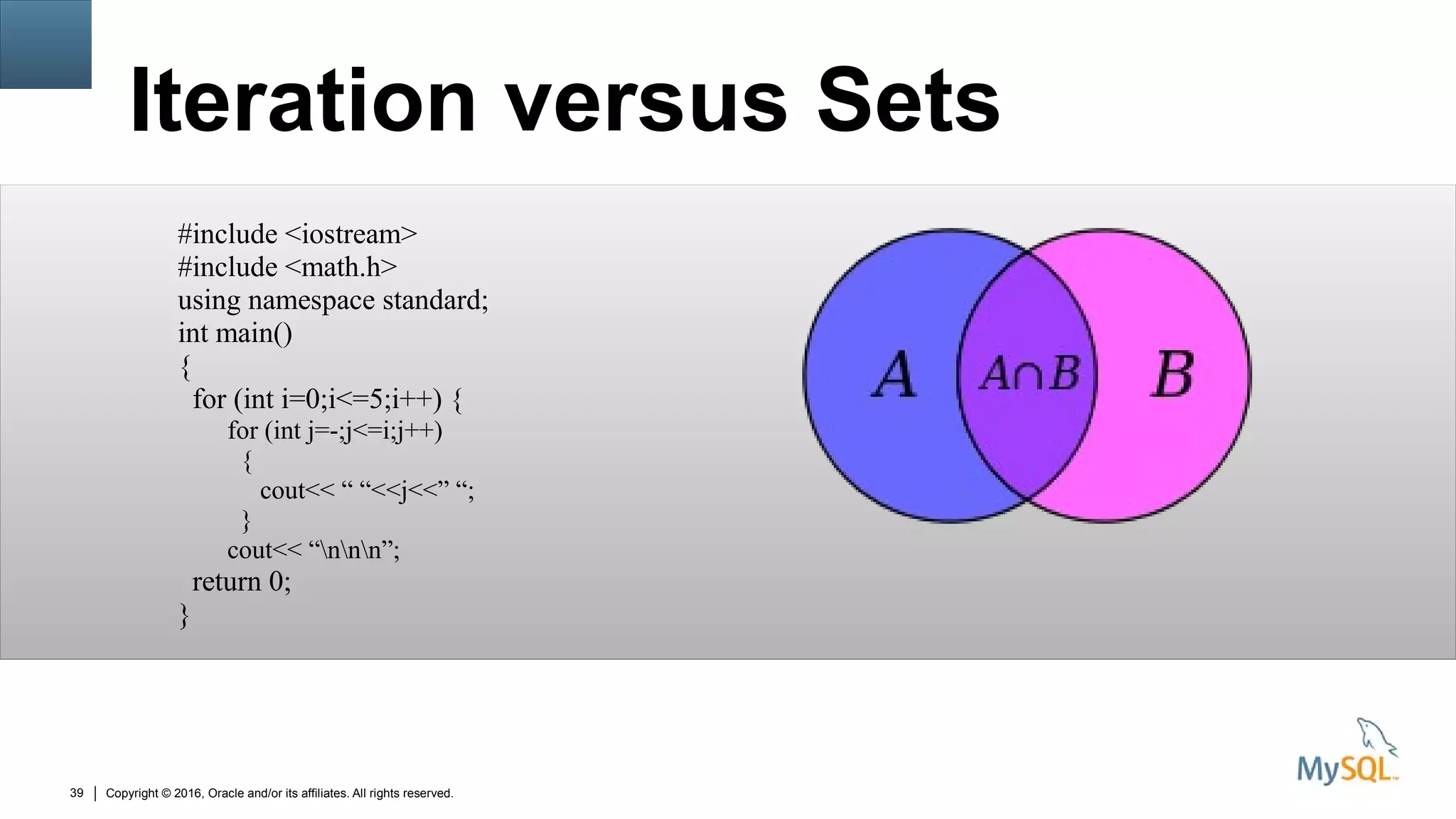
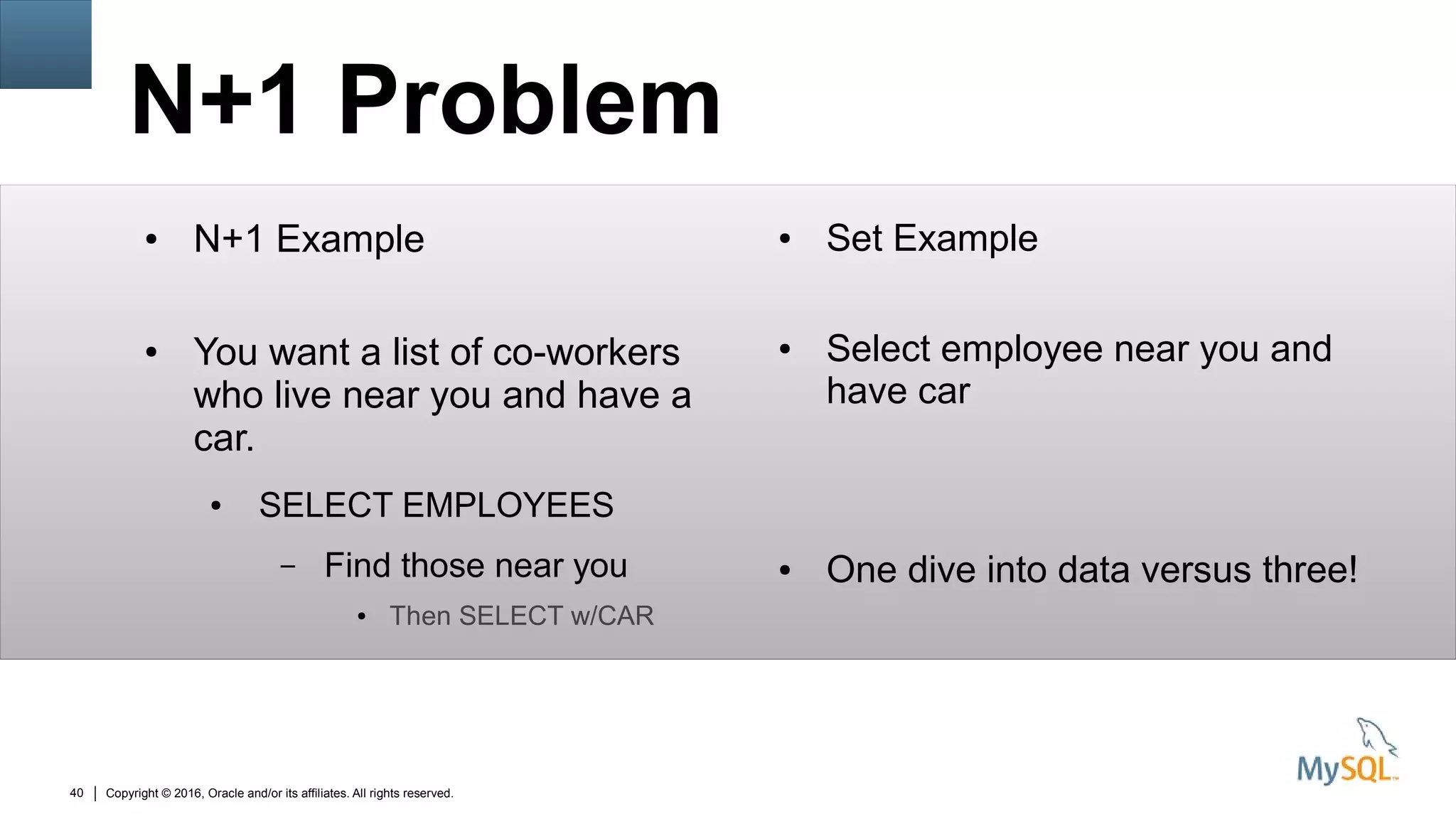
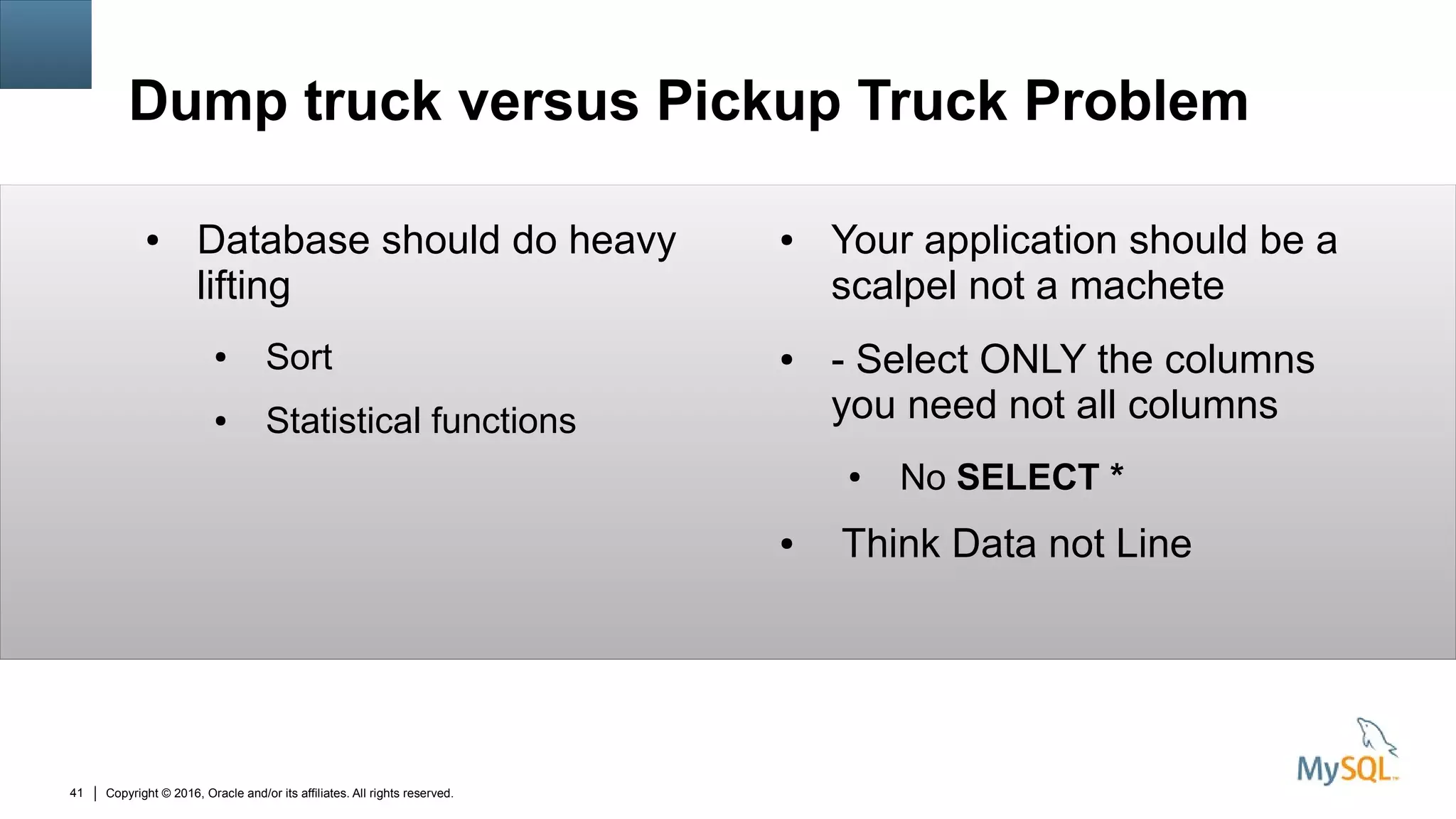
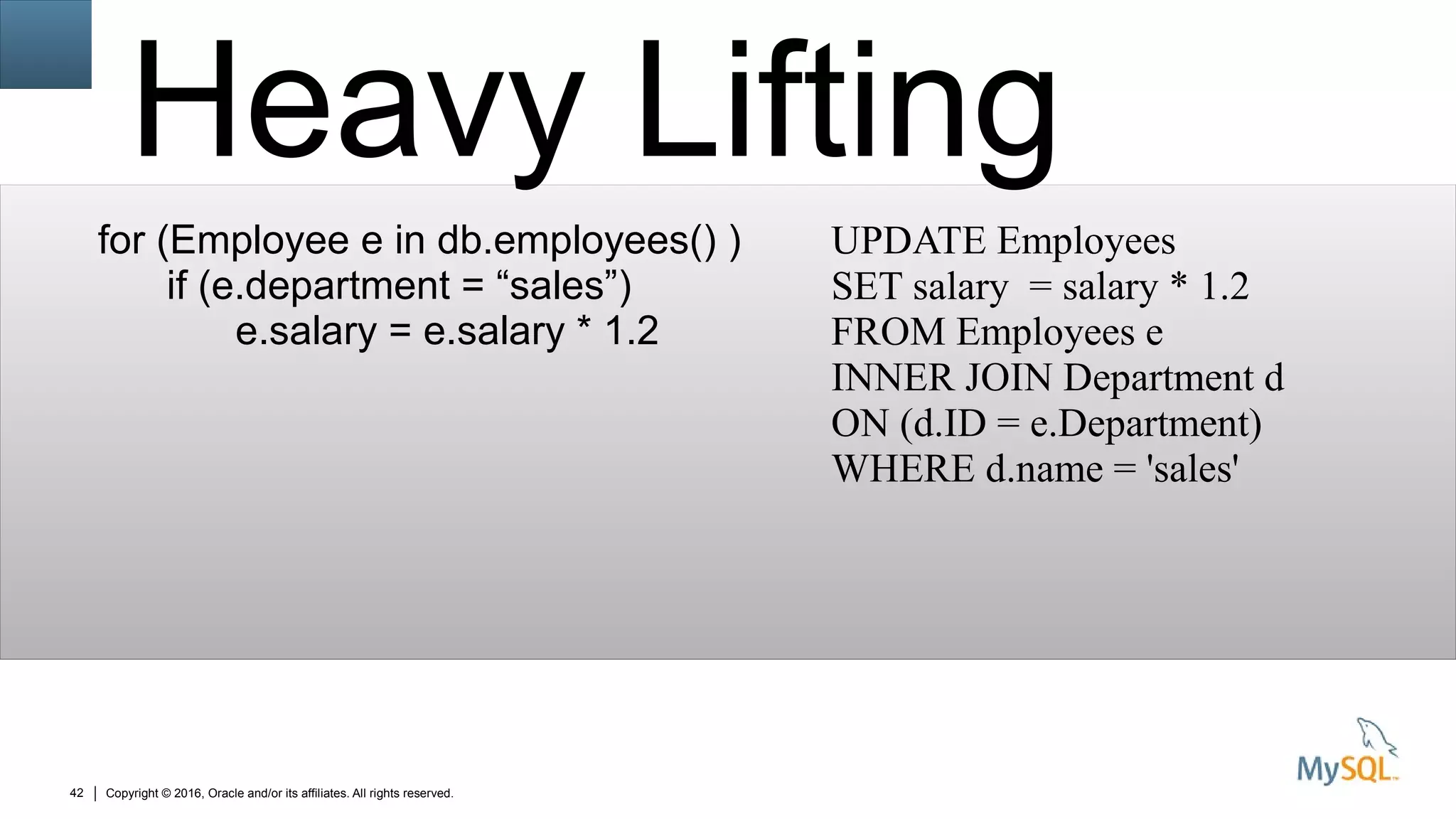
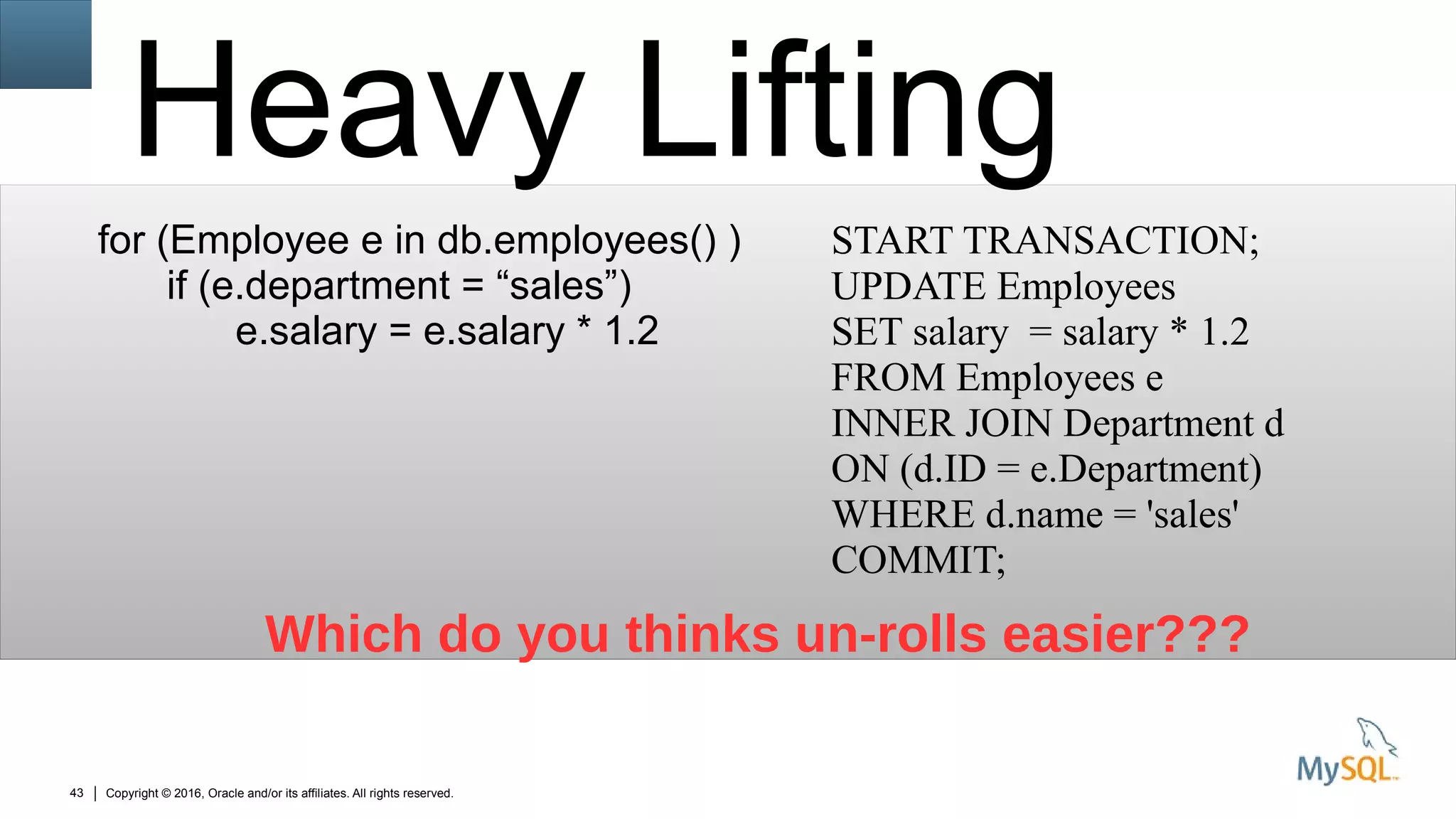
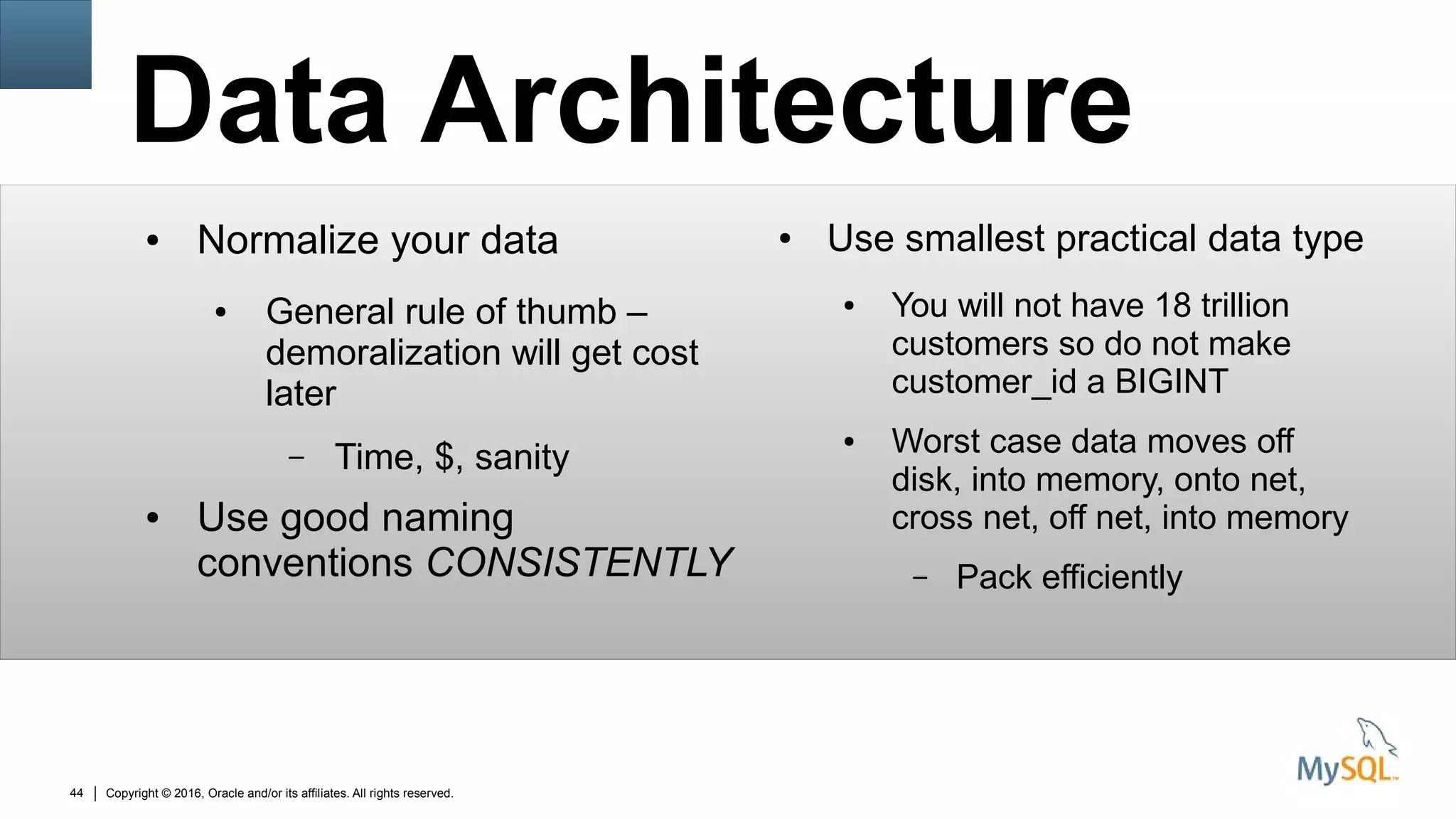
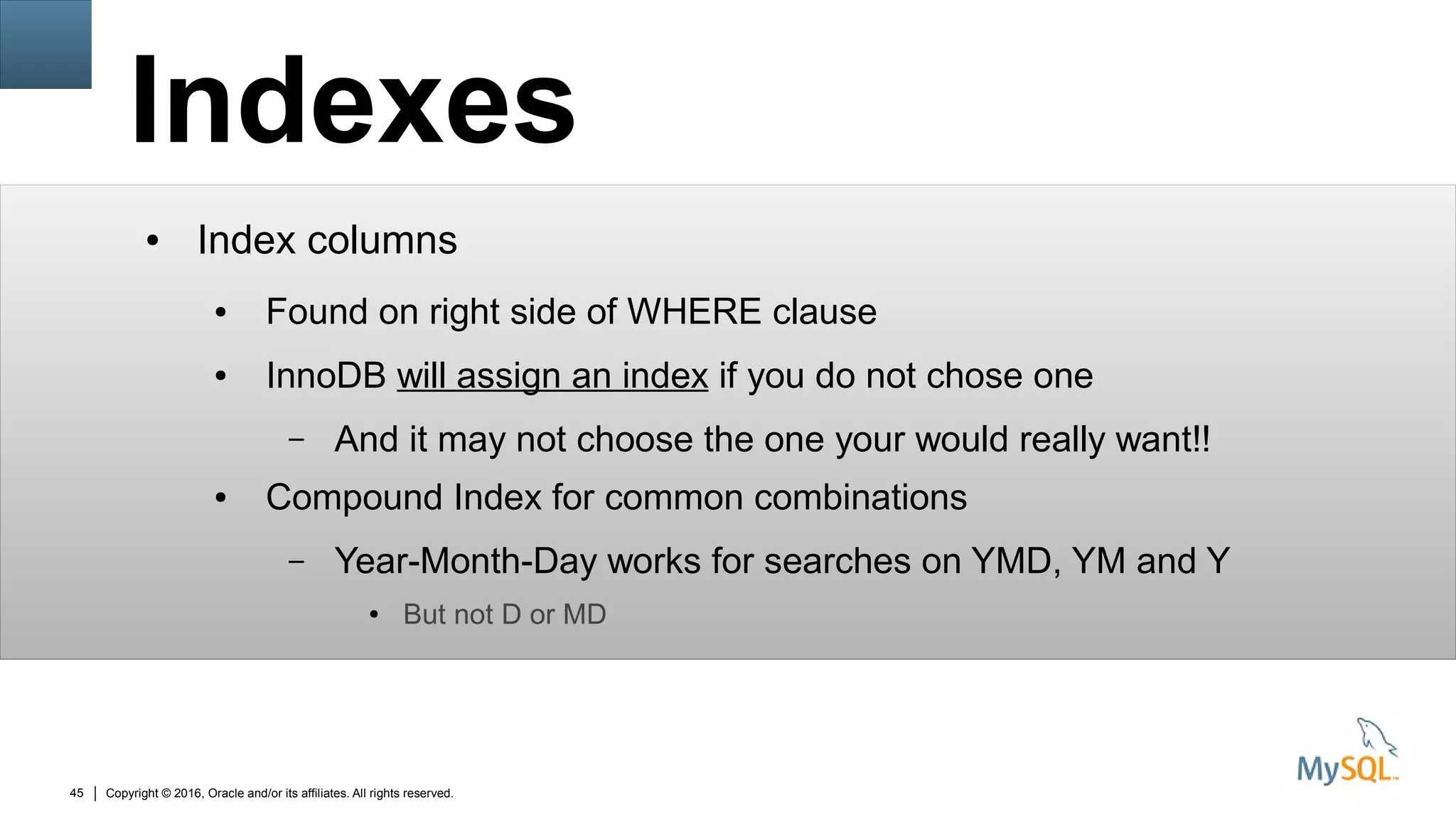
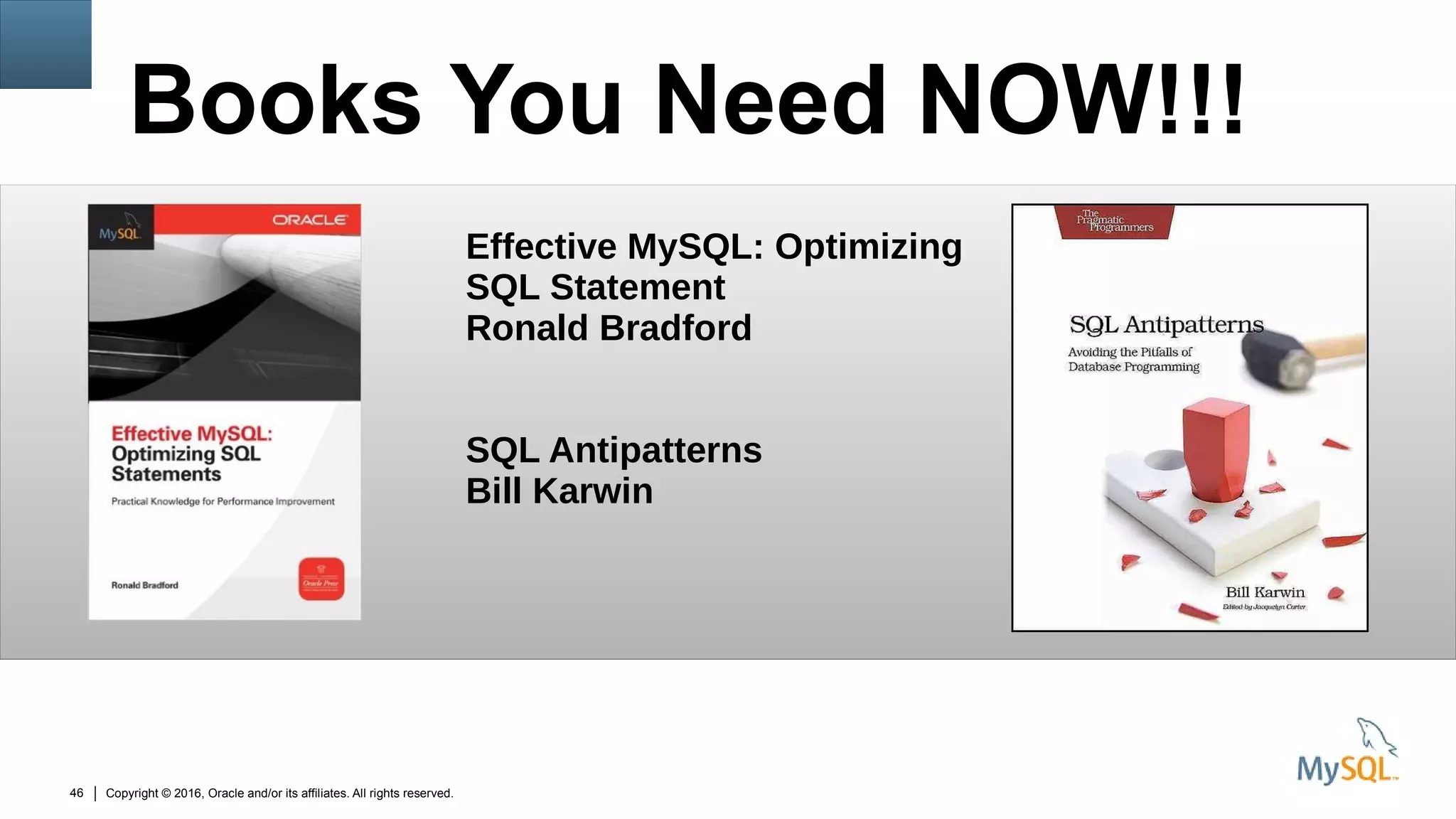
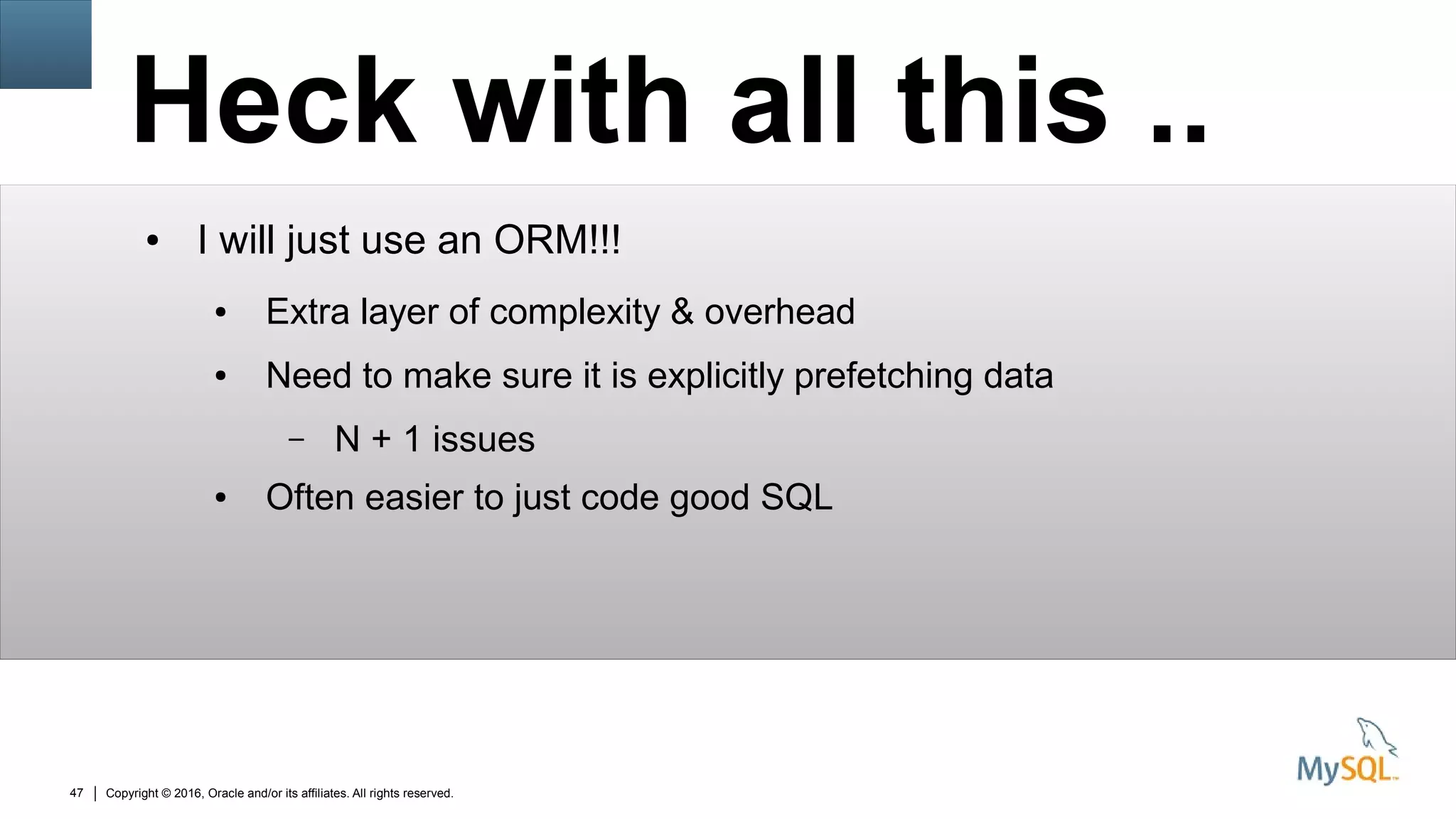
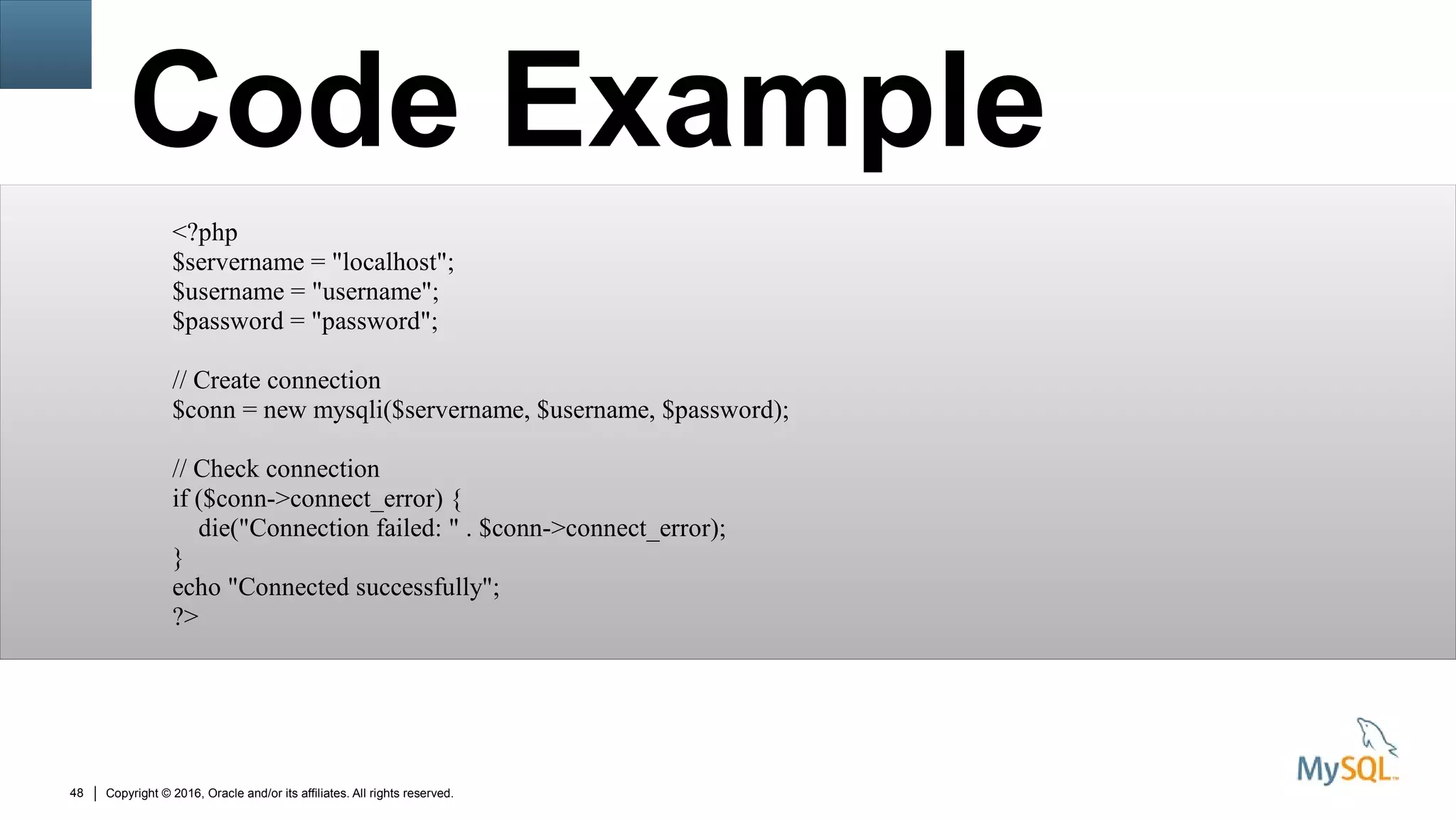
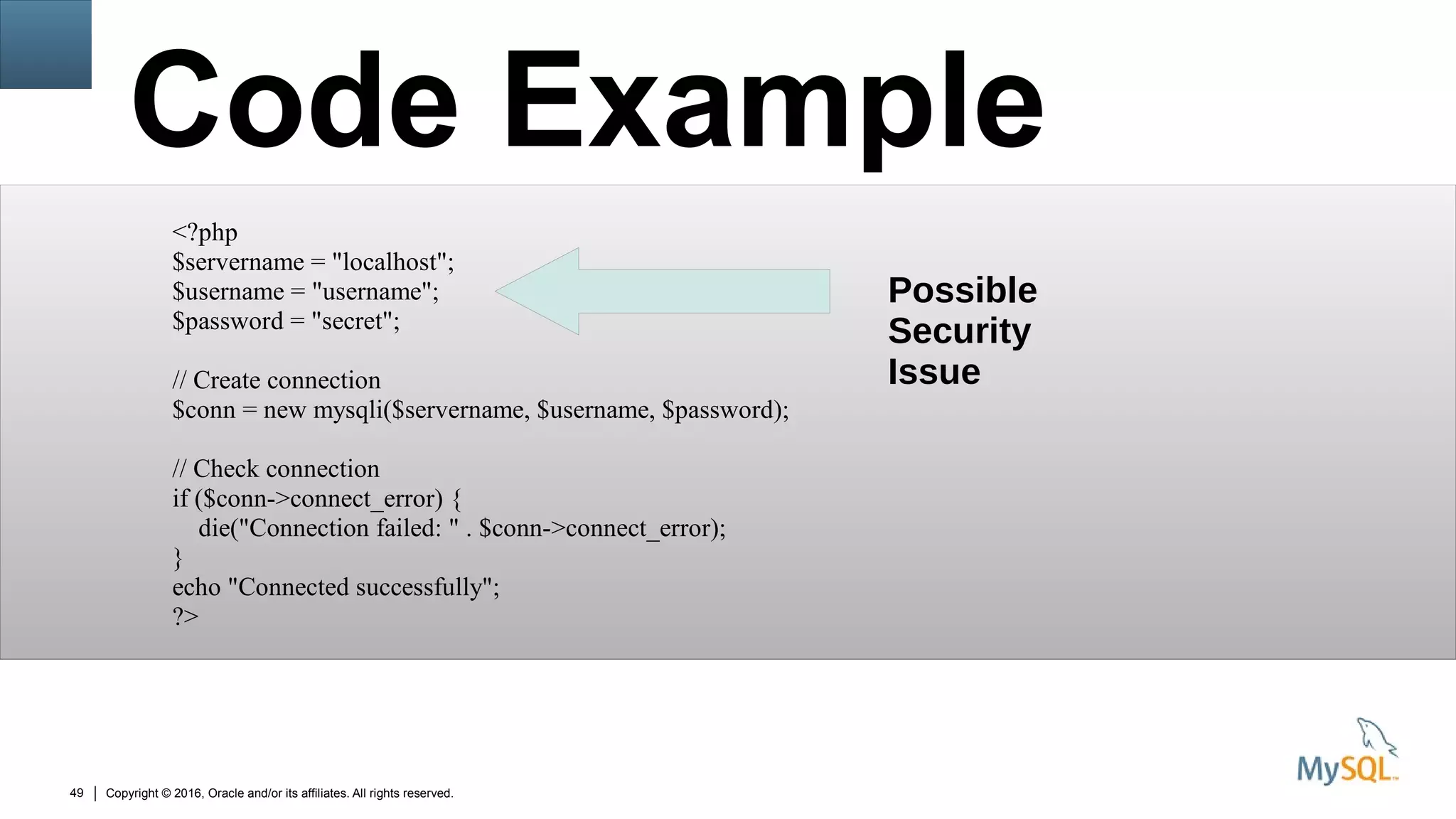
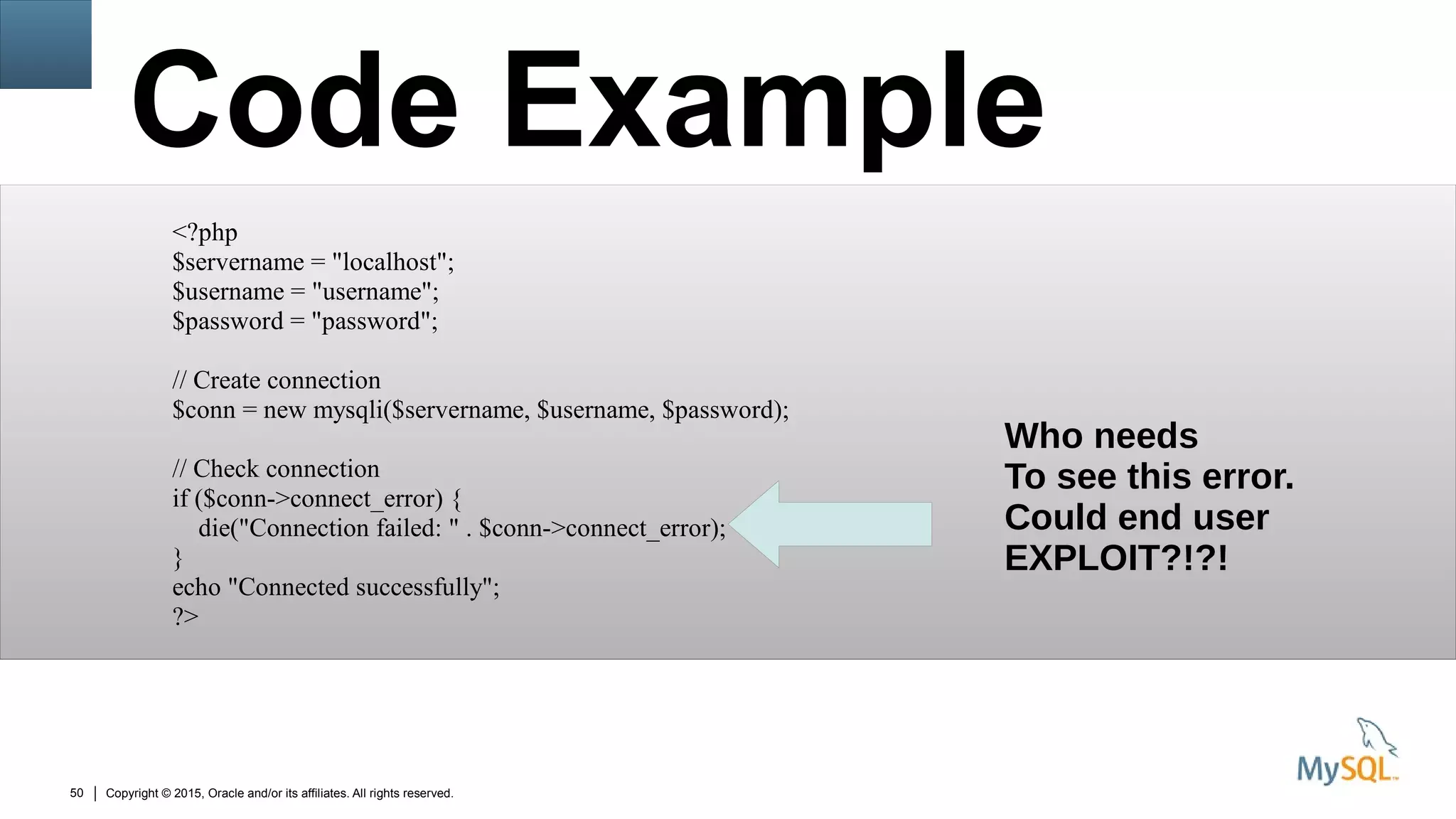
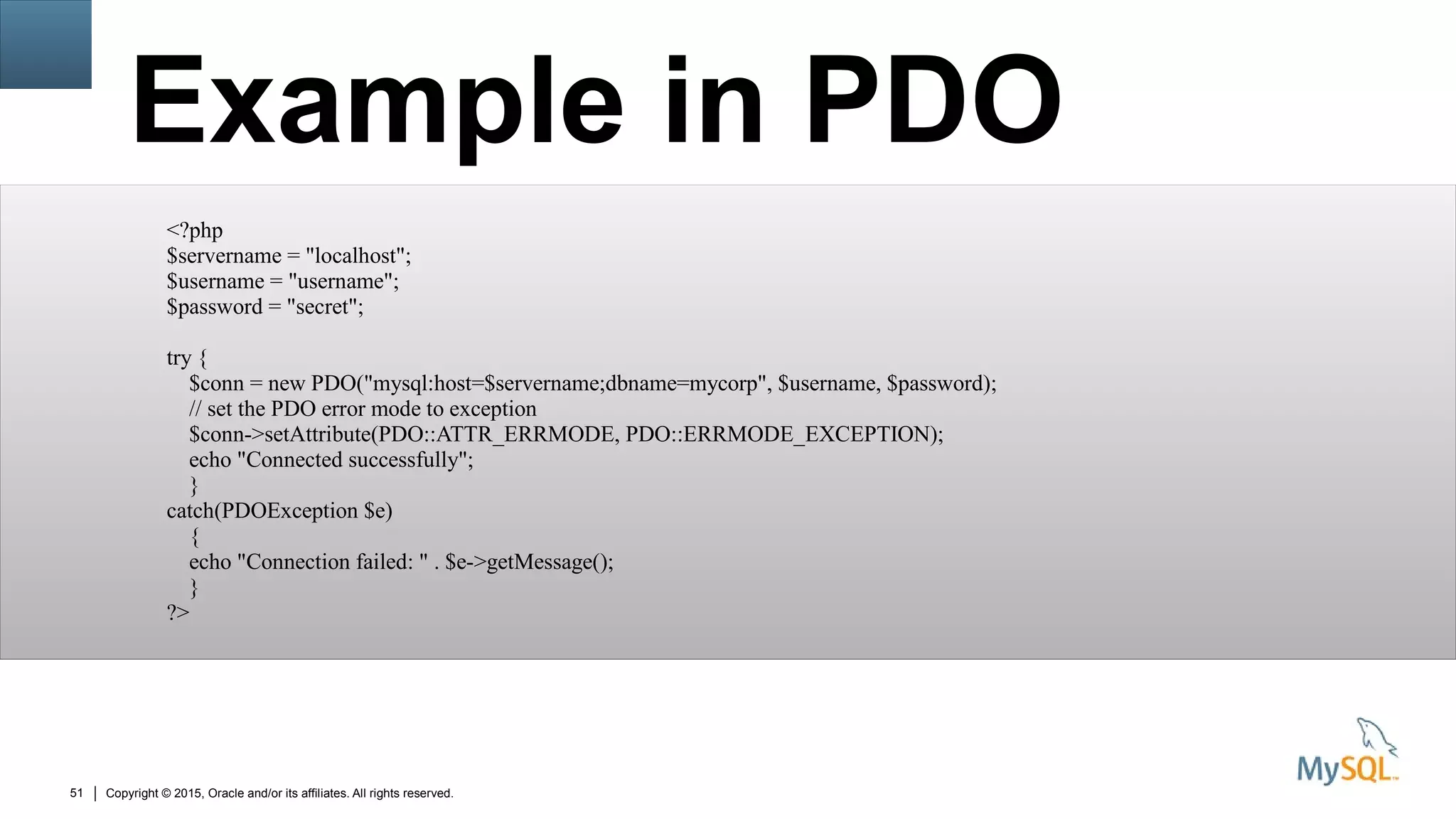
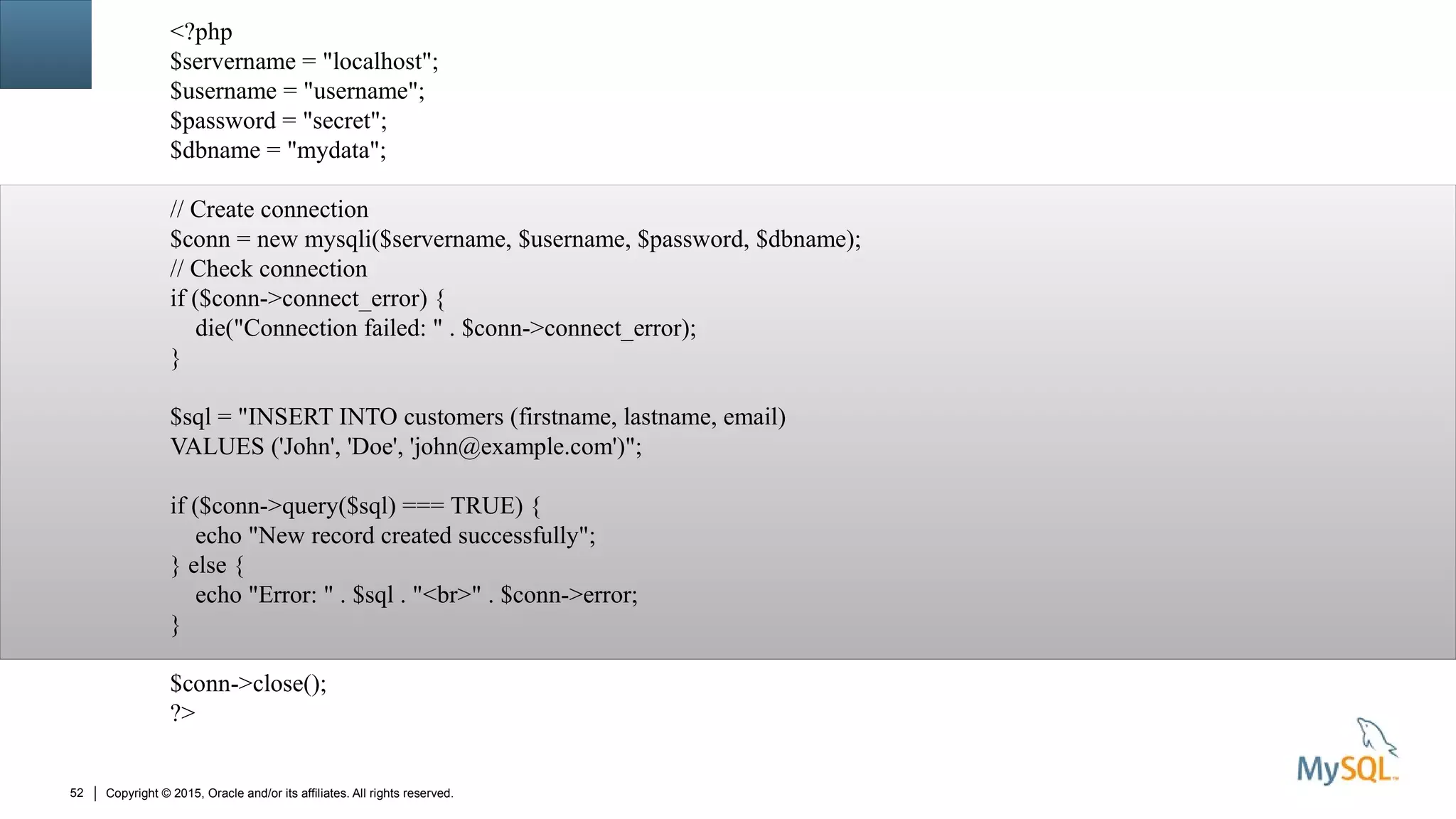
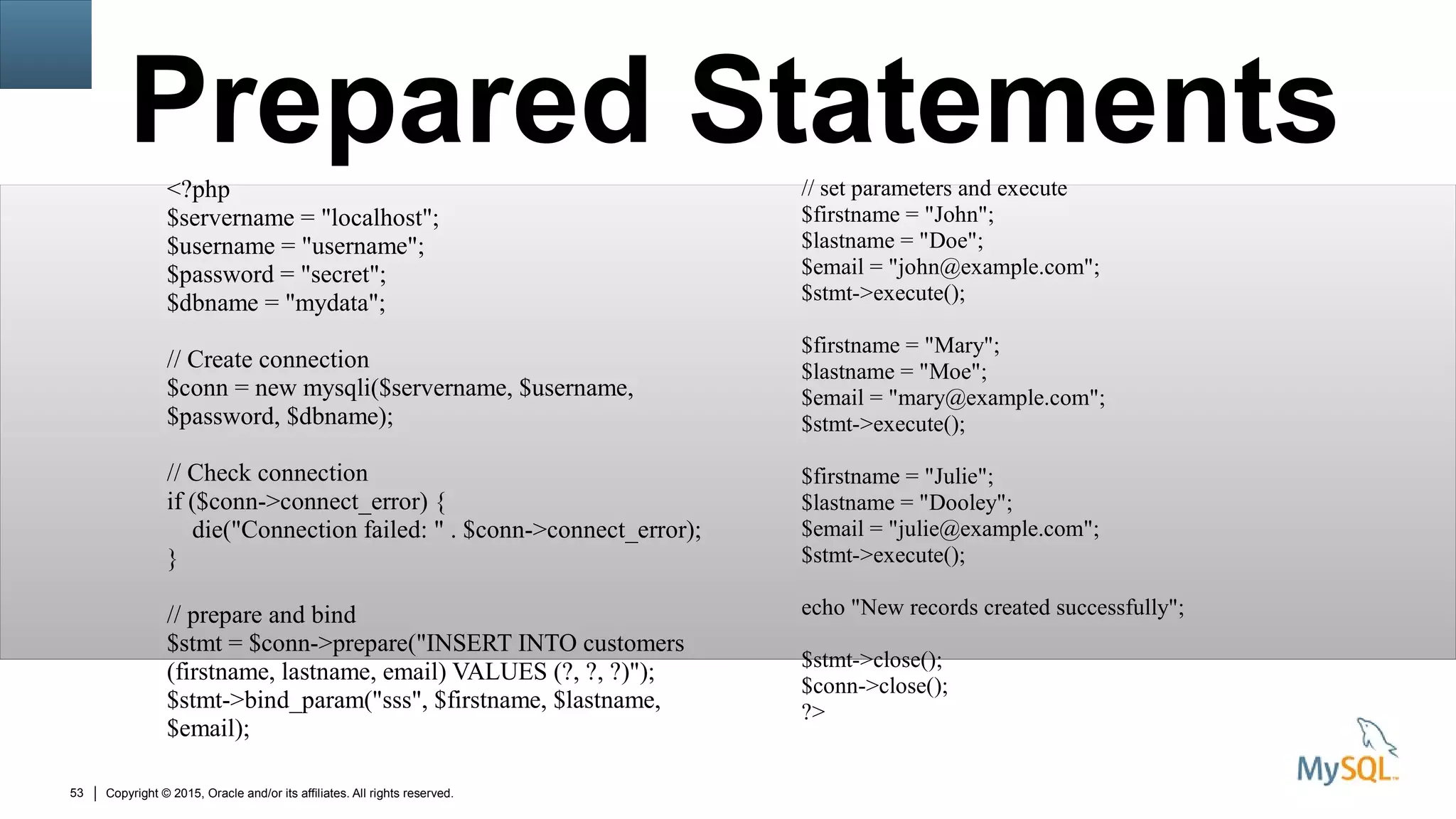
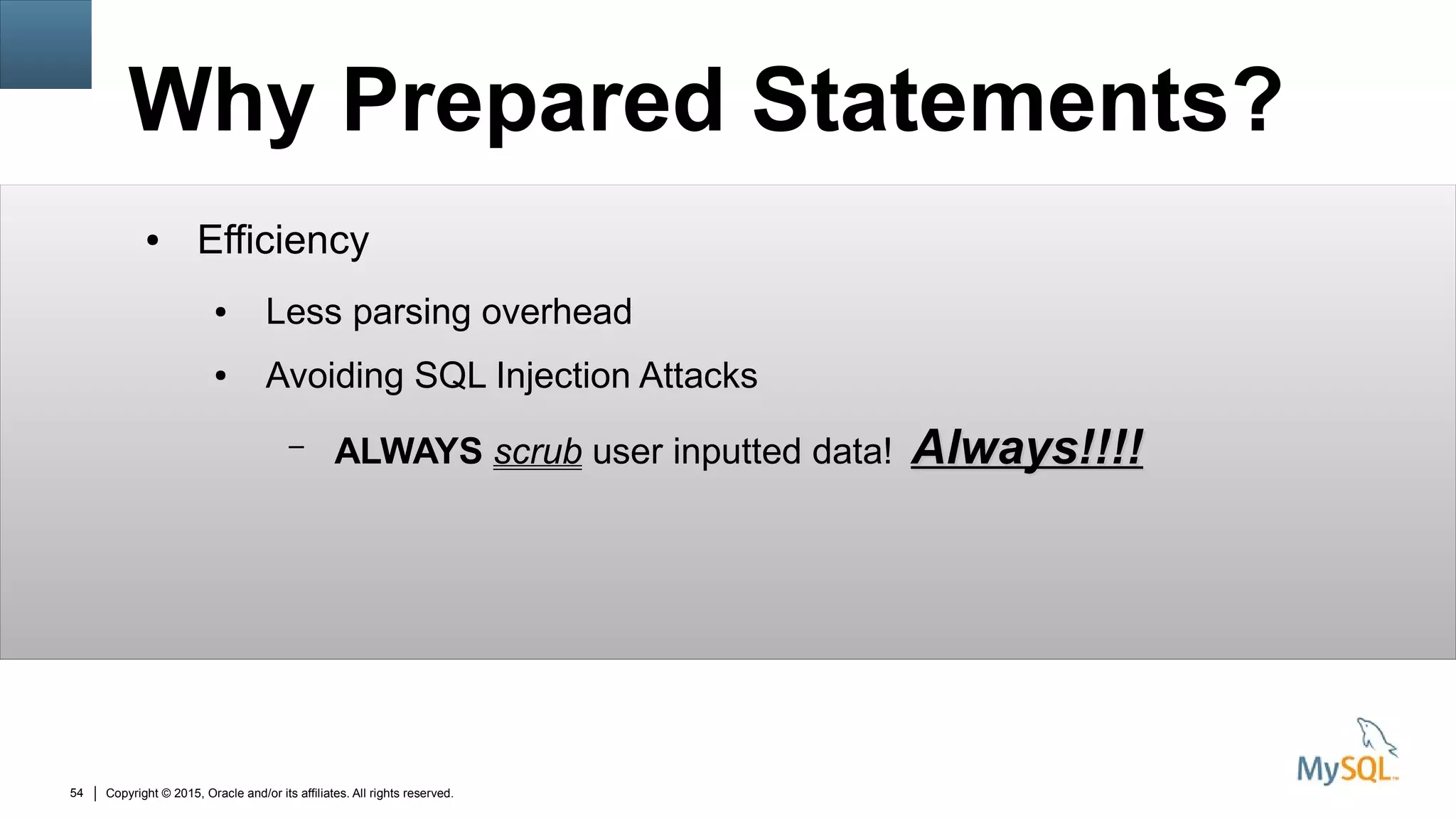
![Copyright © 2015, Oracle and/or its affiliates. All rights reserved.55
Example
<?php
...
$sql = "SELECT id, firstname, lastname FROM customers";
$result = $conn->query($sql);
if ($result->num_rows > 0) {
// output data of each row
while($row = $result->fetch_assoc()) {
echo "id: " . $row["id"]. " - Name: " . $row["firstname"]. " " . $row["lastname"]. "<br>";
}
} else {
echo "0 results";
}
$conn->close();
?>](https://image.slidesharecdn.com/skiphpdatabasebasicsl-160114041301/75/SkiPHP-Database-Basics-for-PHP-55-2048.jpg)
